Capitol Reef and area (Sept. 2021)

Cottonwood Canyon Road Scenic Drive, southern Utah
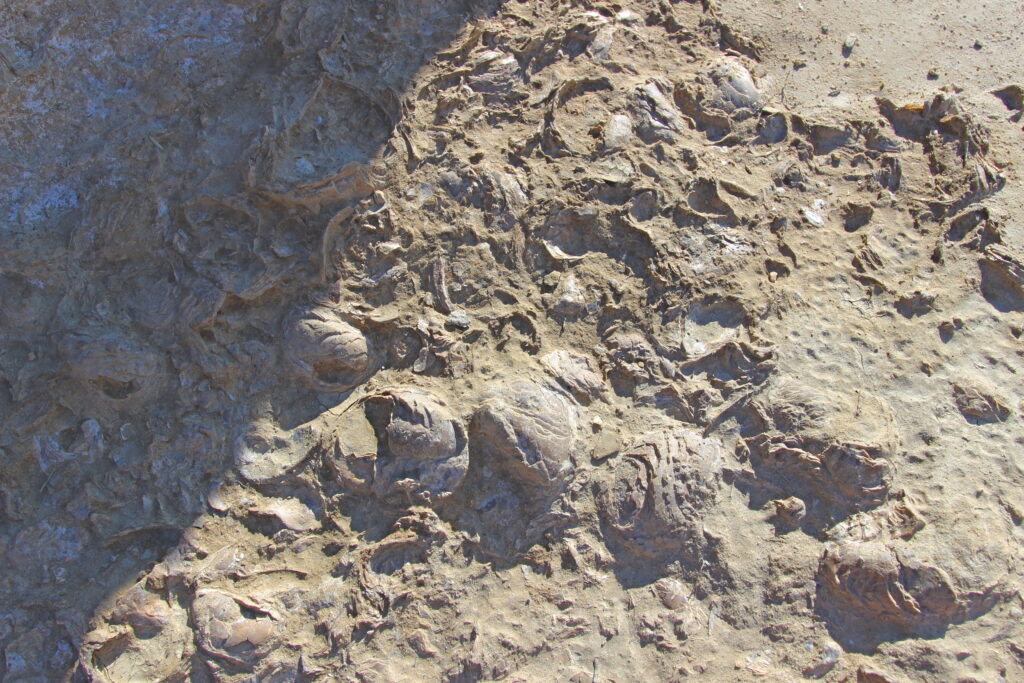
90 million year old oyster bed along the roadside of Cottonwood Canyon Road
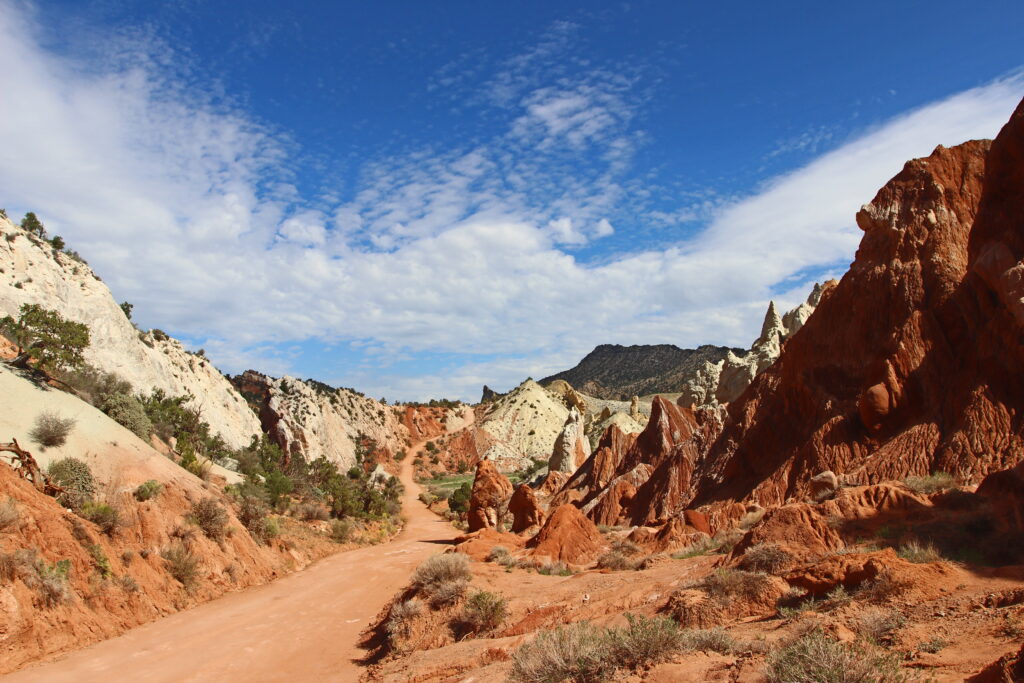
Candy Land, beautiful formations on Cottonwood Canyon Road
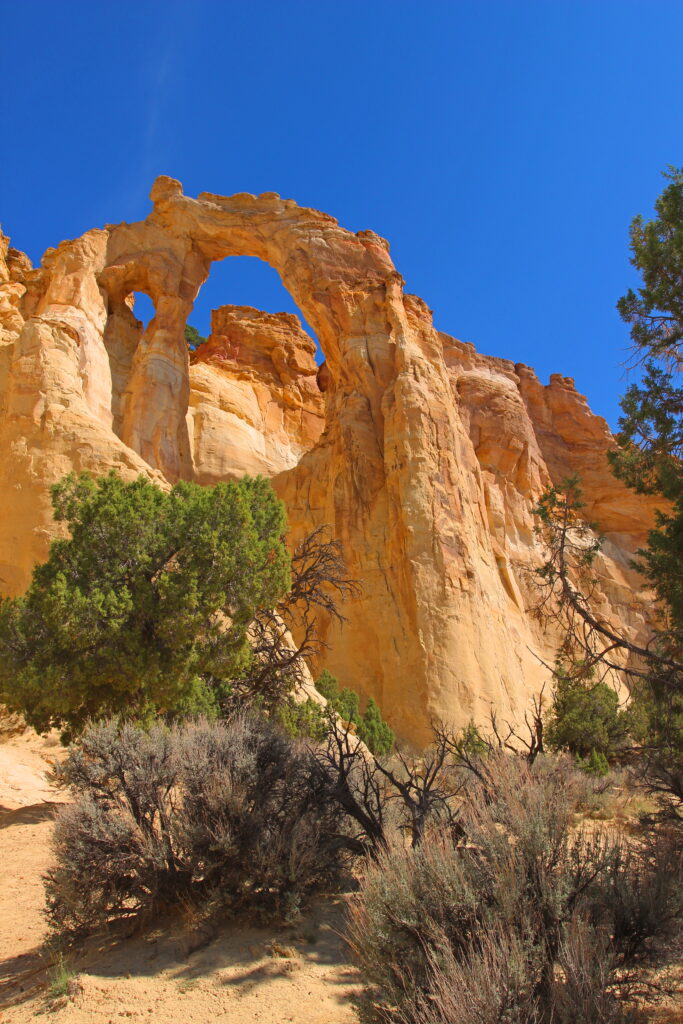
Grosvenor Arch, a double arch on Cottonwood Canyon Road in Escalante, named for a president of National Geographic Society
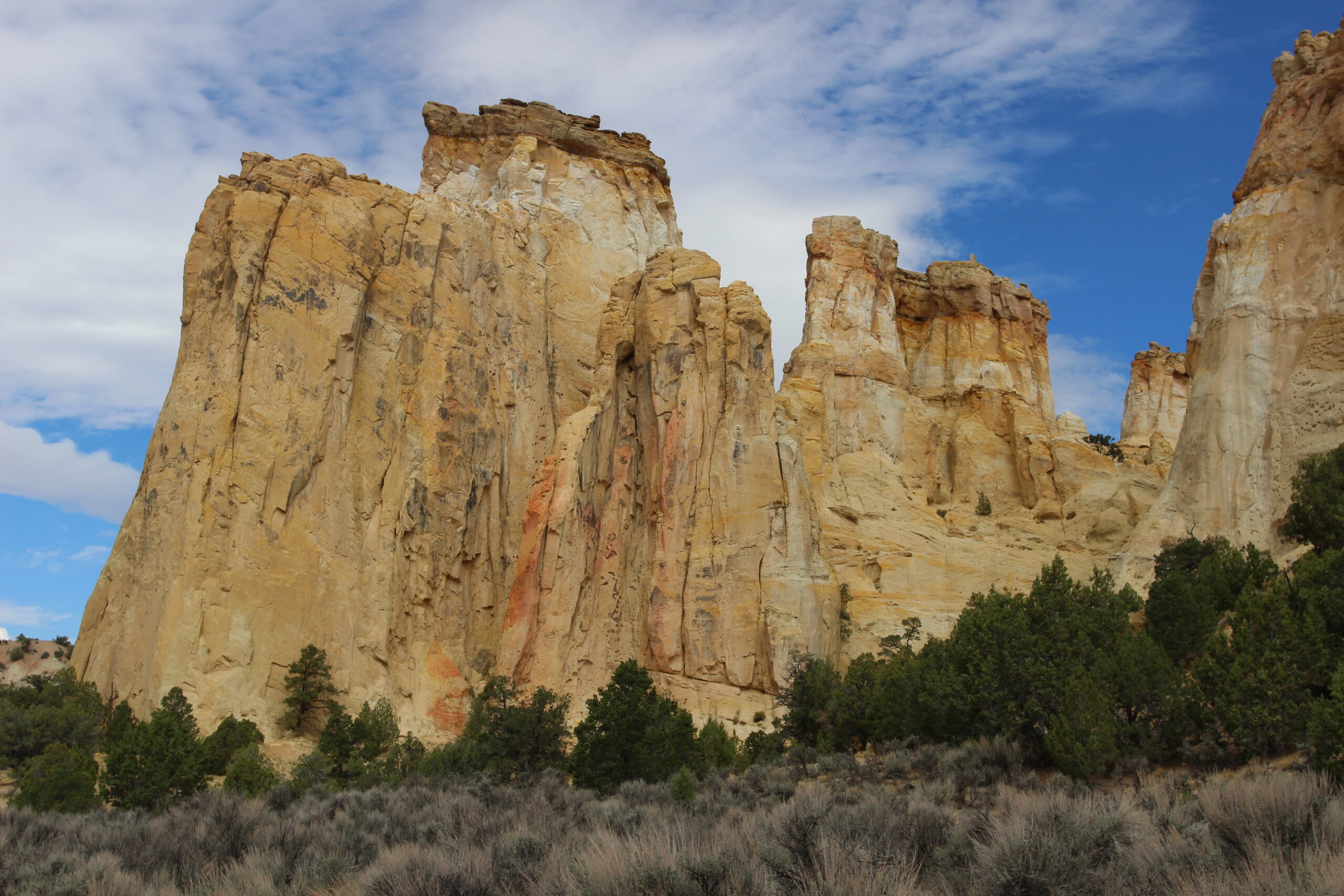
Formations surrounding the arch are just as impressive!
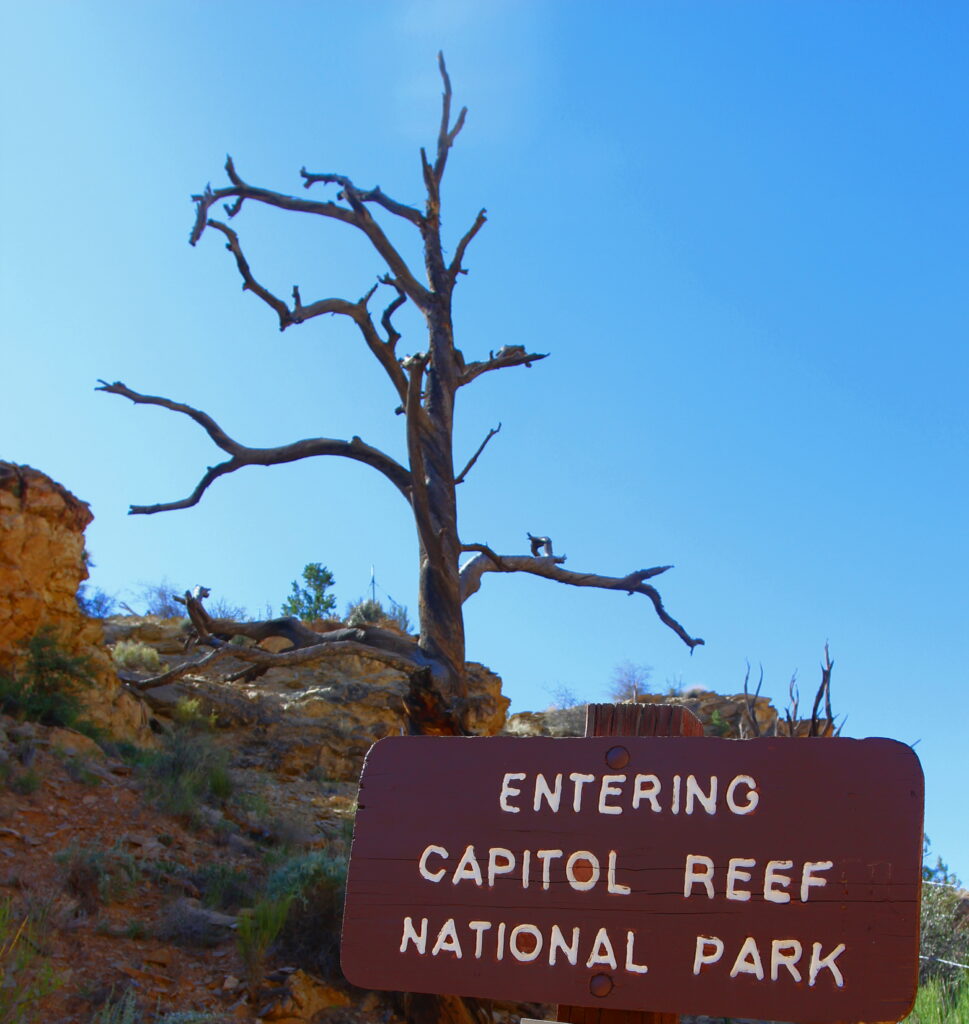
Welcome to Capitol Reef National Park! Doesn’t it look inviting?
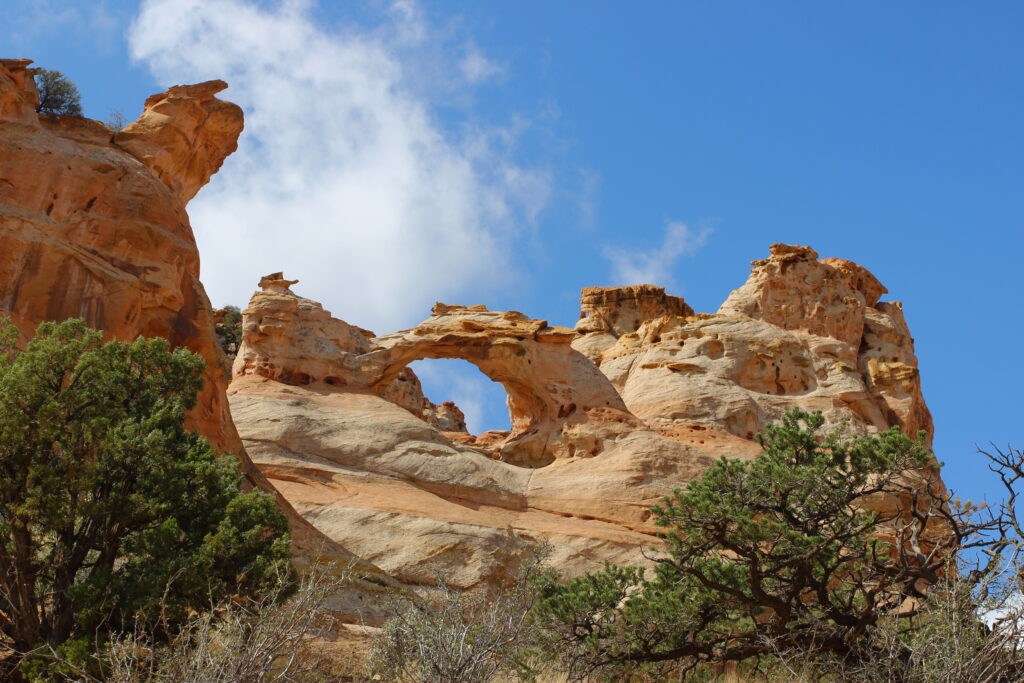
First view of Reunion Arch
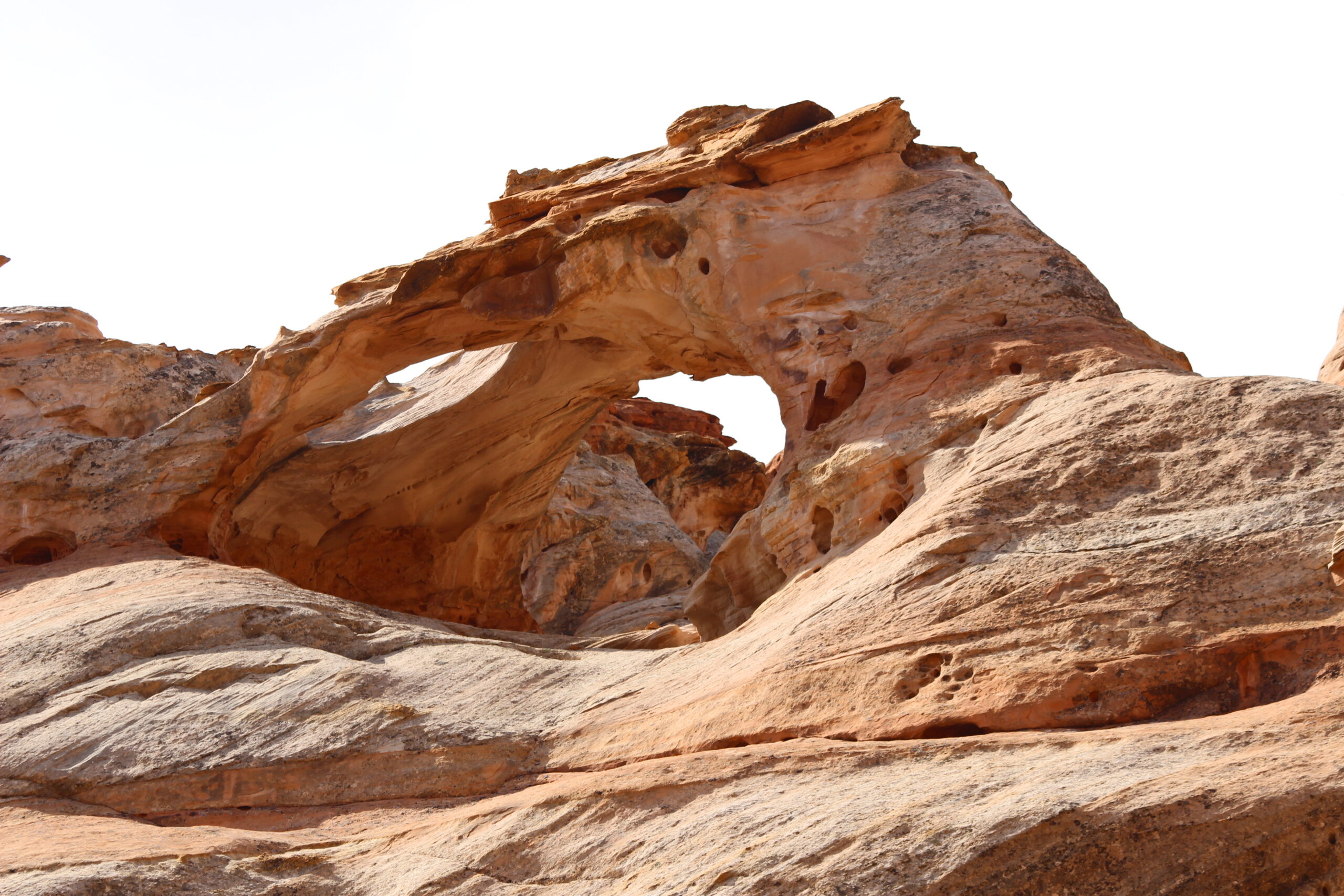
Actually a double arch!
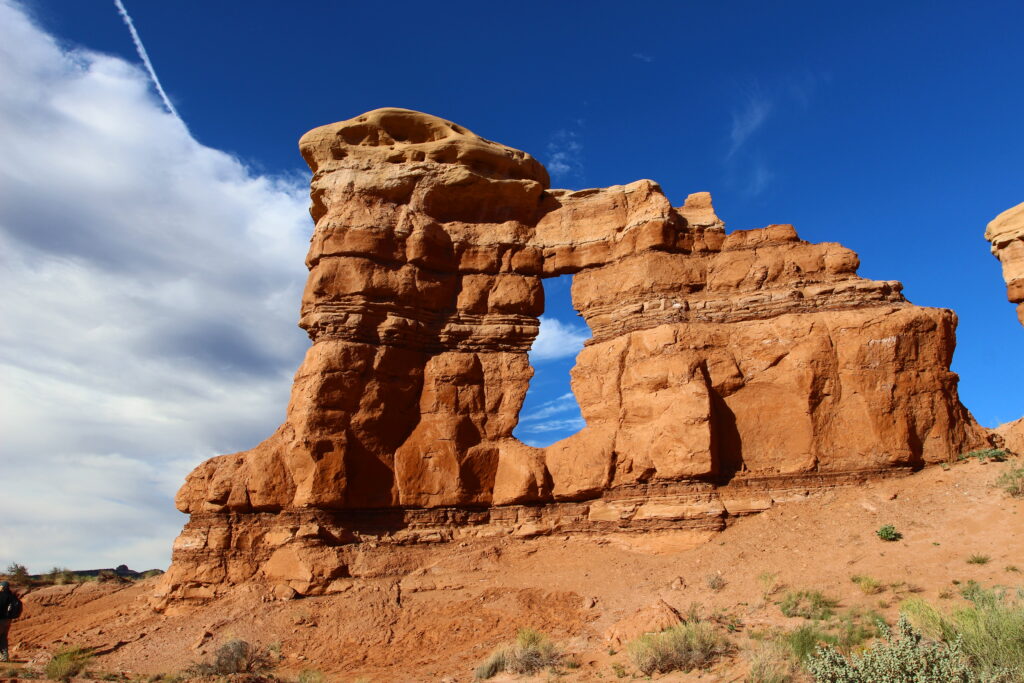
Burro Wash Arch – hike to it is filled with narrows and scrambles, but well worth it
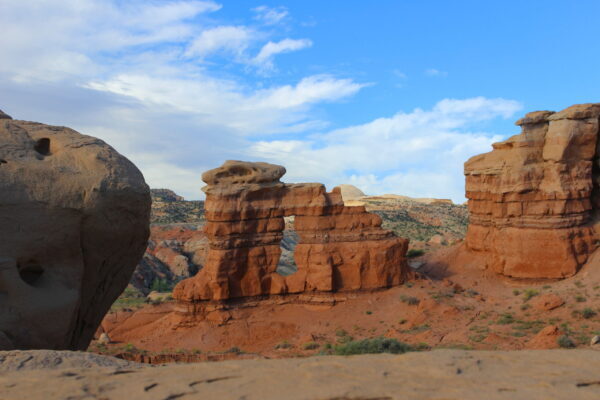
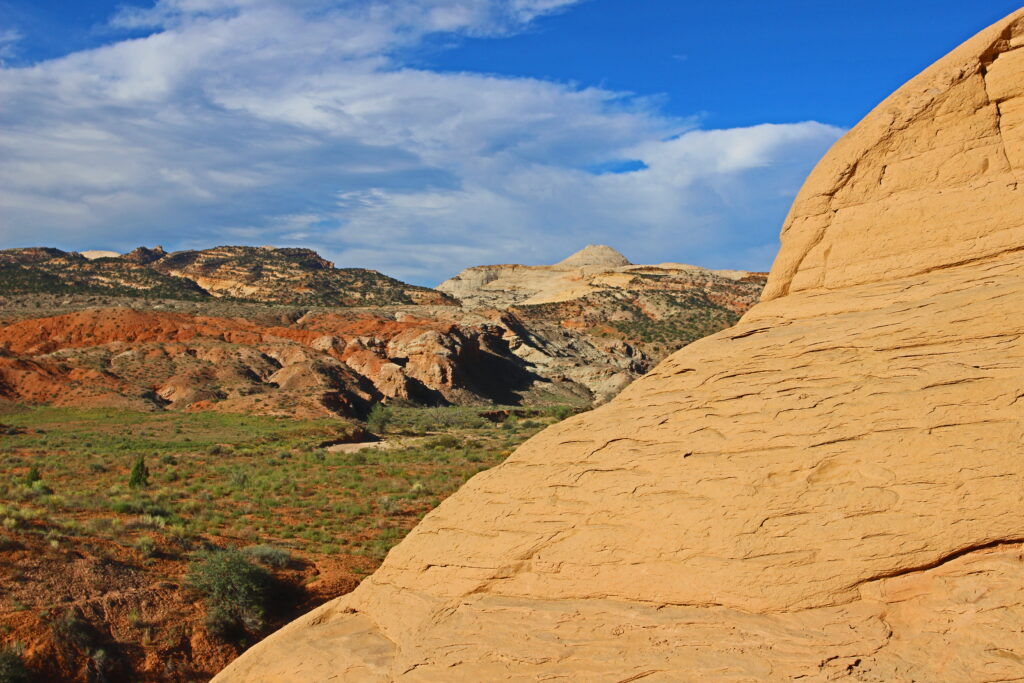
Another view of the “capitol” dome
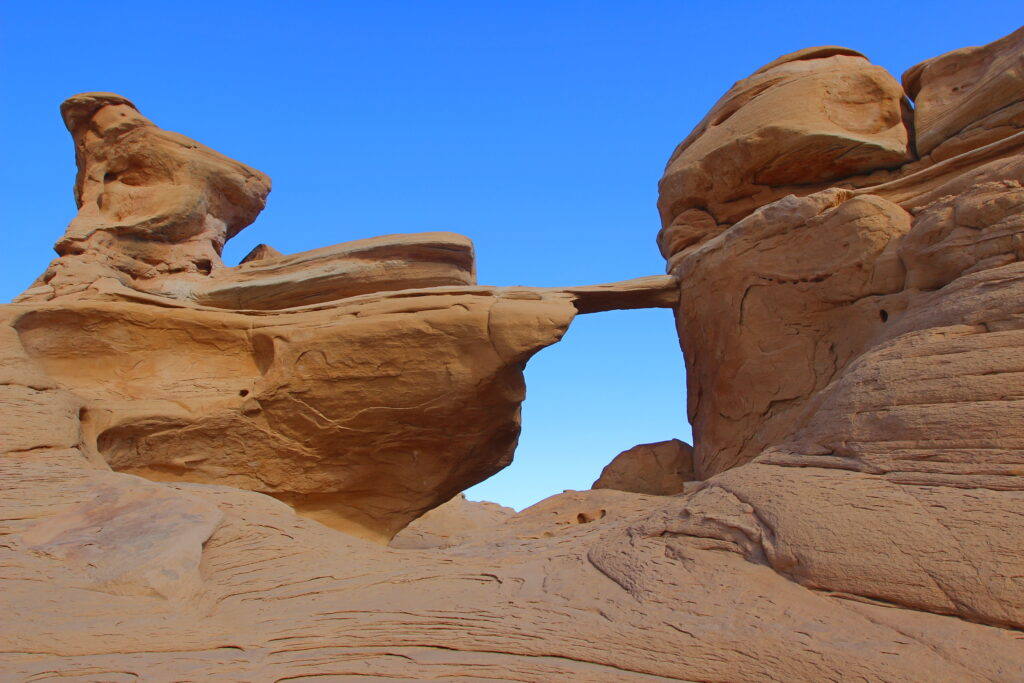
Secluded Arch, a bonus arch next to Burro Wash Arch
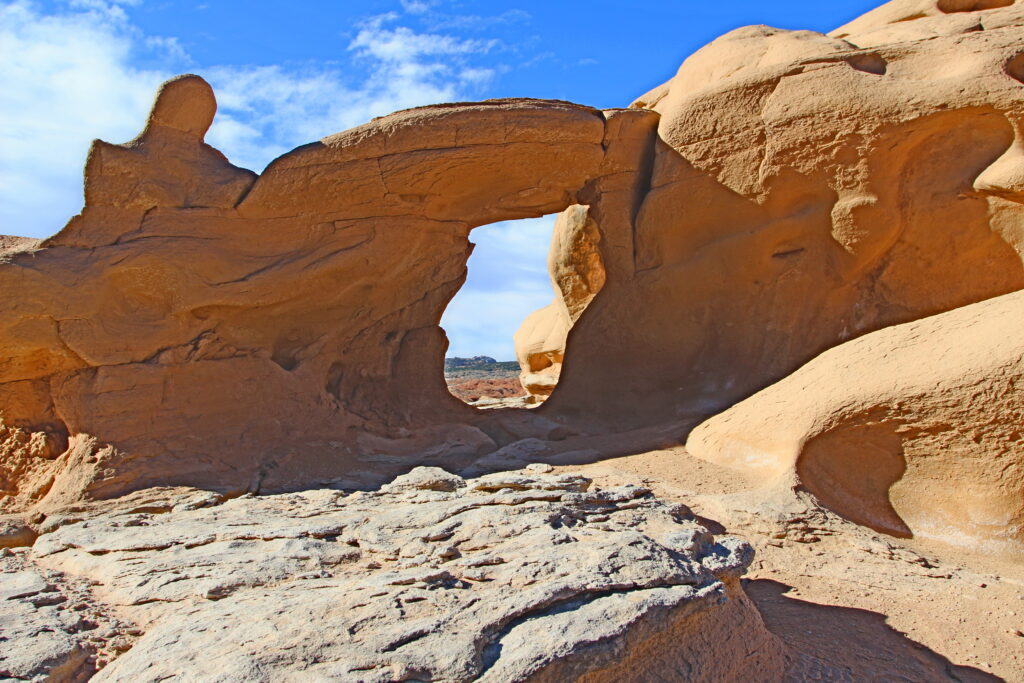
Another bonus, Secluded Arch Two
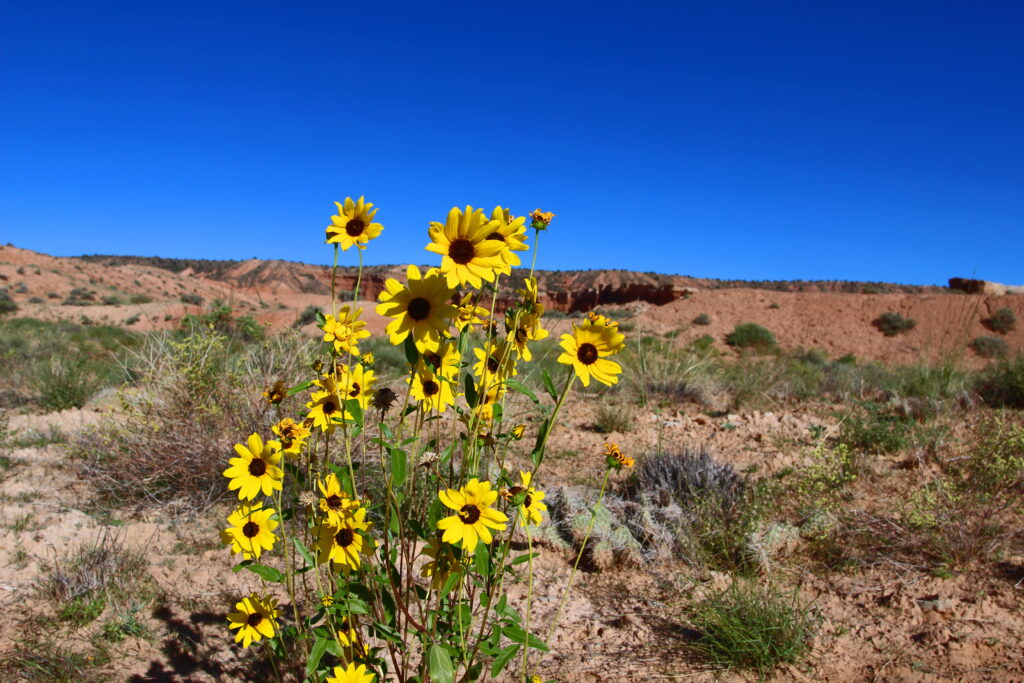
Dessert sunflowers adorn our trail back.
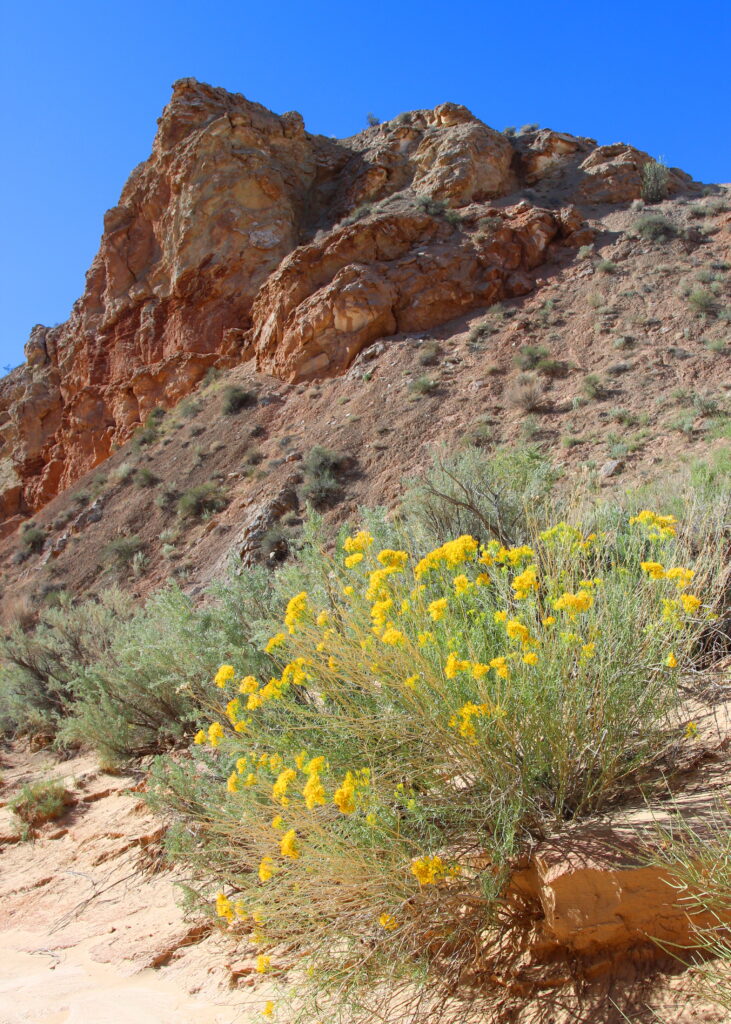
Bright yellow rabbitbrush, chrysothamnus viscidiflorus, graces the desert everywhere!
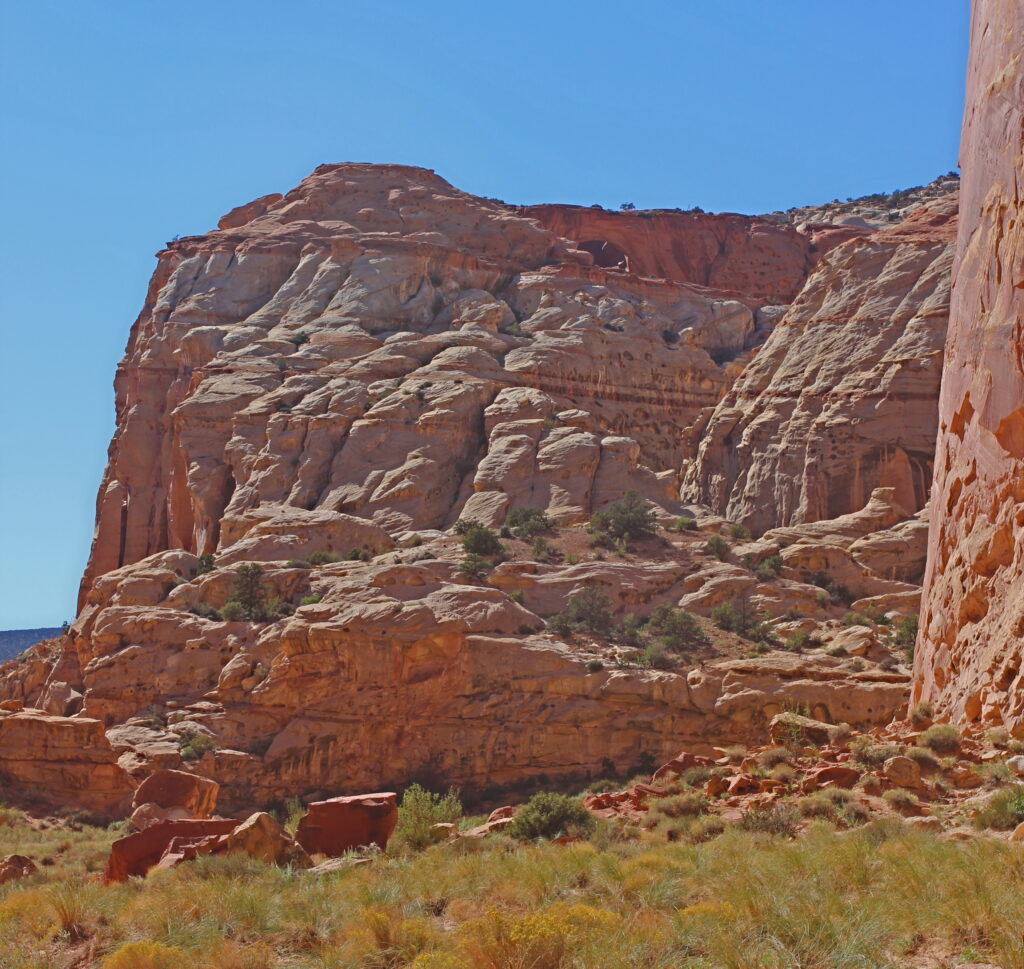
Capitol Reef, a most majestic national park
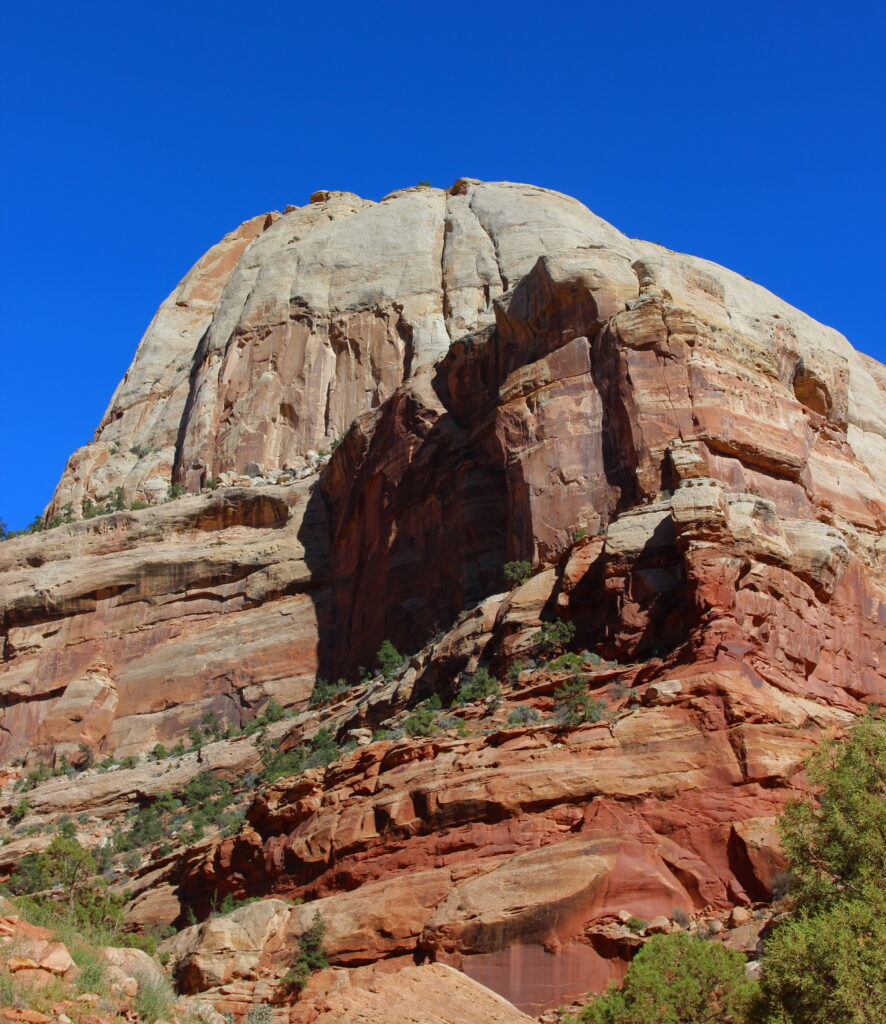
Another of the white domes that gives Capitol Reef its name; on the trail to Cassidy Bridge

To repeat, Capitol Reef is a most majestic place!
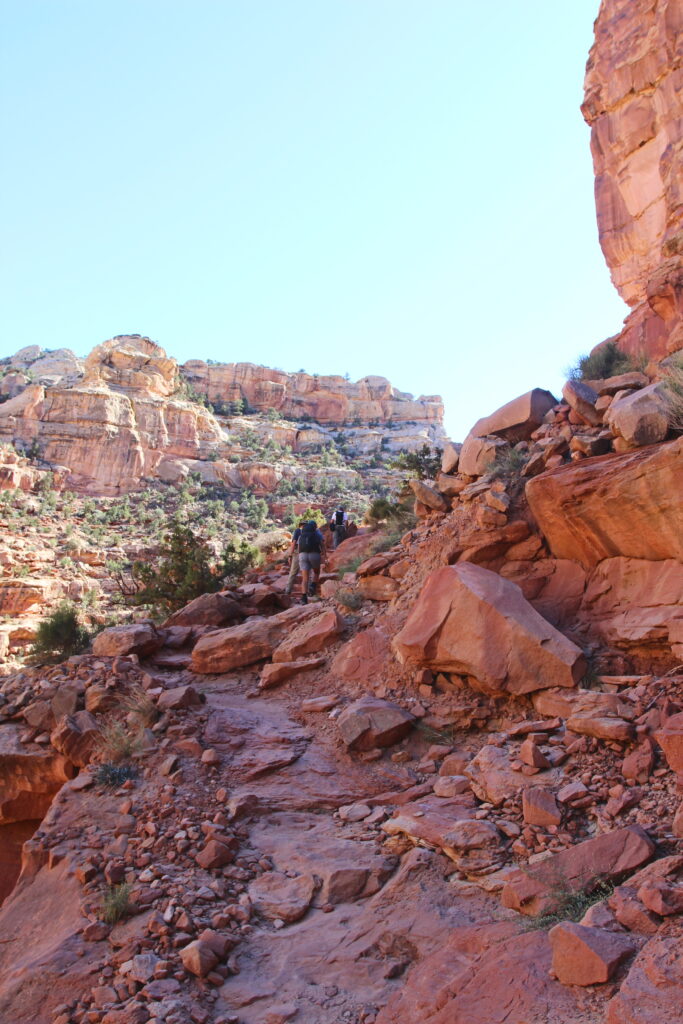
Be aware, the trail to Cassidy Bridge Arch is steep and rugged.

View from the trail
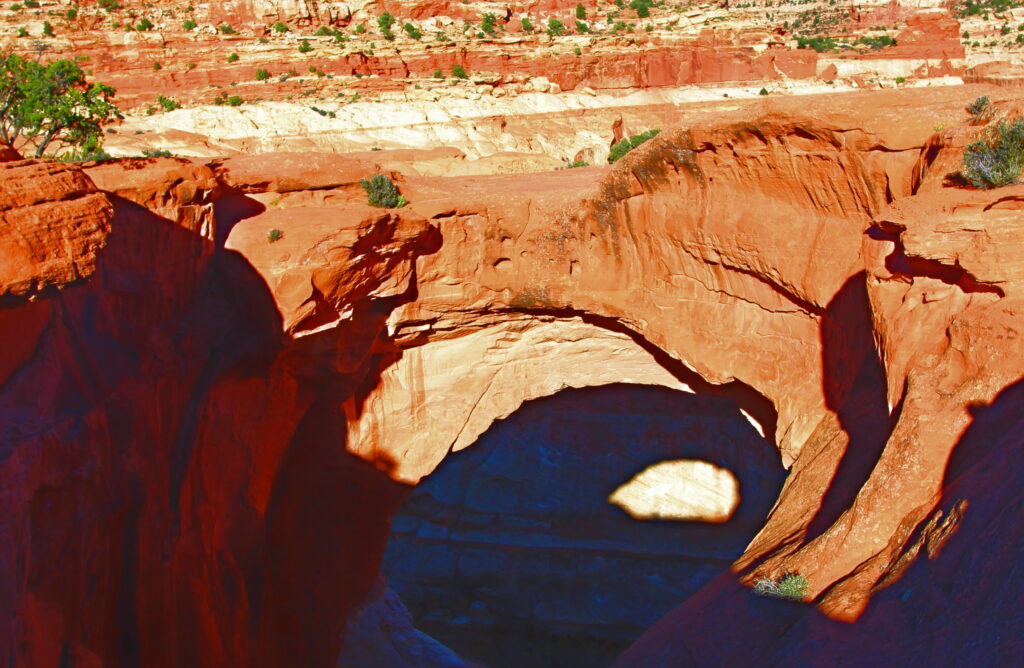
Cassidy Bridge, named for Butch Cassidy who was a real person
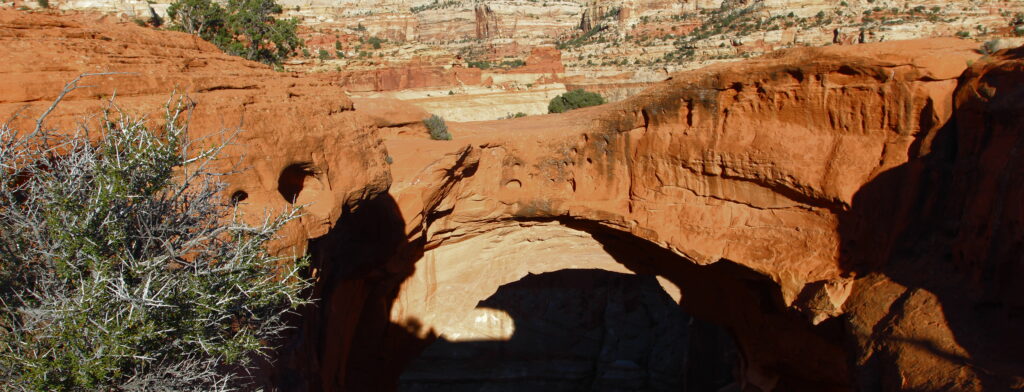
Another view of this massive arch
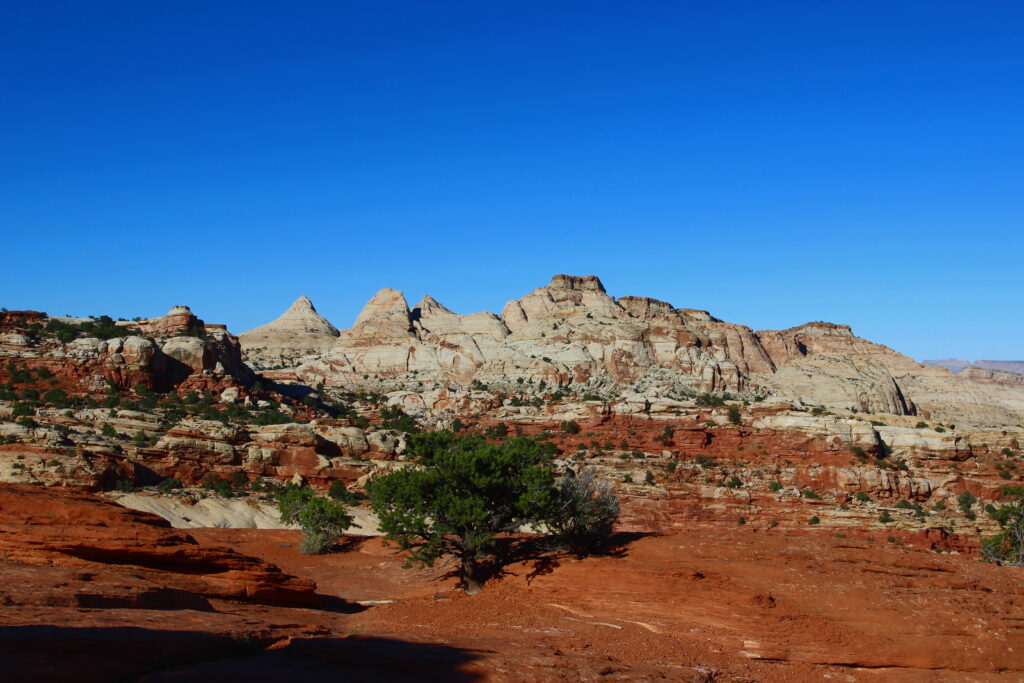
Looking out from the summit
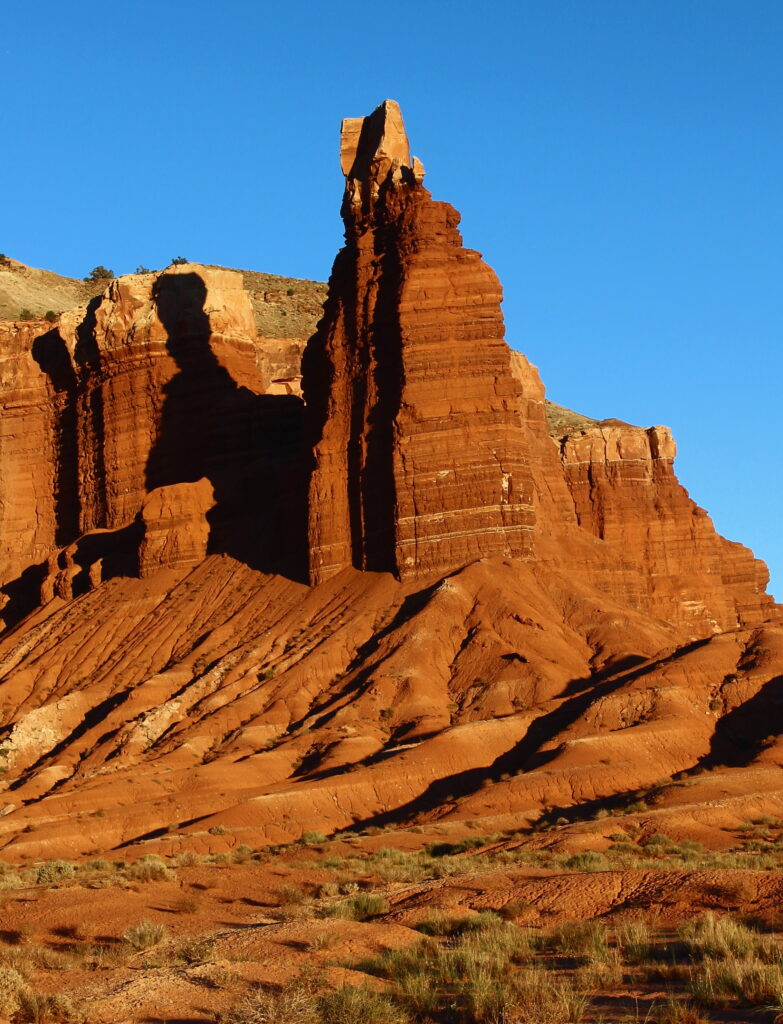
Chimney Rock, an eroded pillar of red sandstone, is easily viewed from the parking lot.
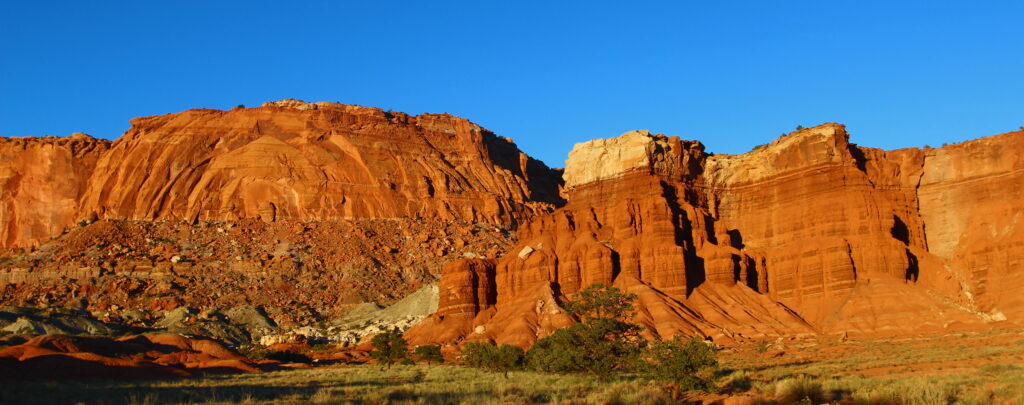
Chimney Rock is surrounded by magnificent red sandstone.
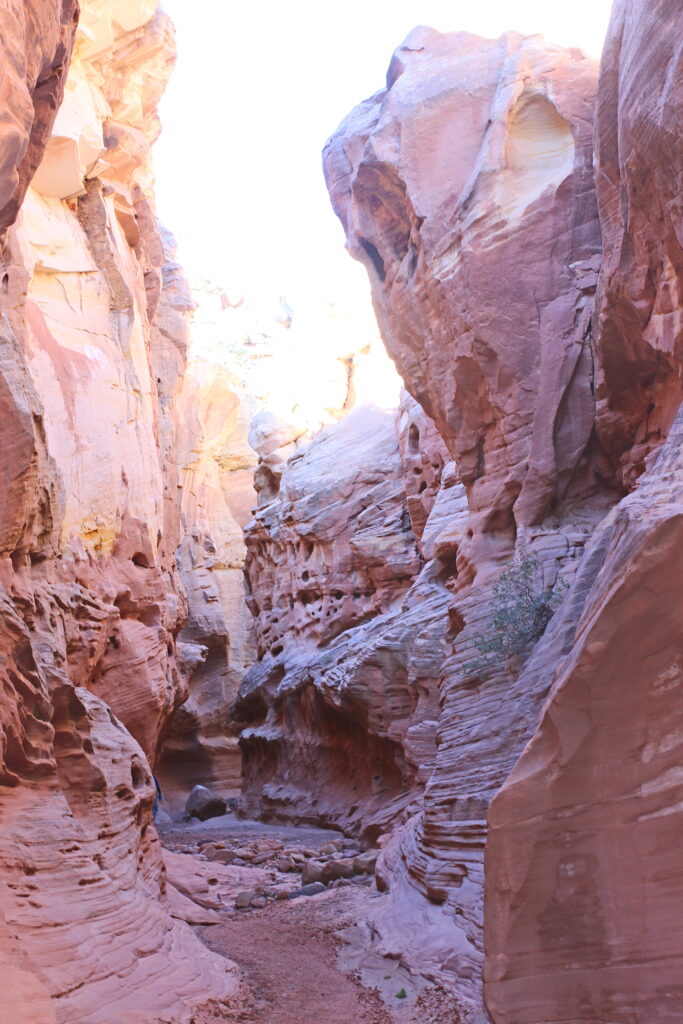
Hiking Sheets Gulch requires scrambling boulder falls and winding through narrow slots often with pools of water. It is a fun hike for a more experienced hiker.
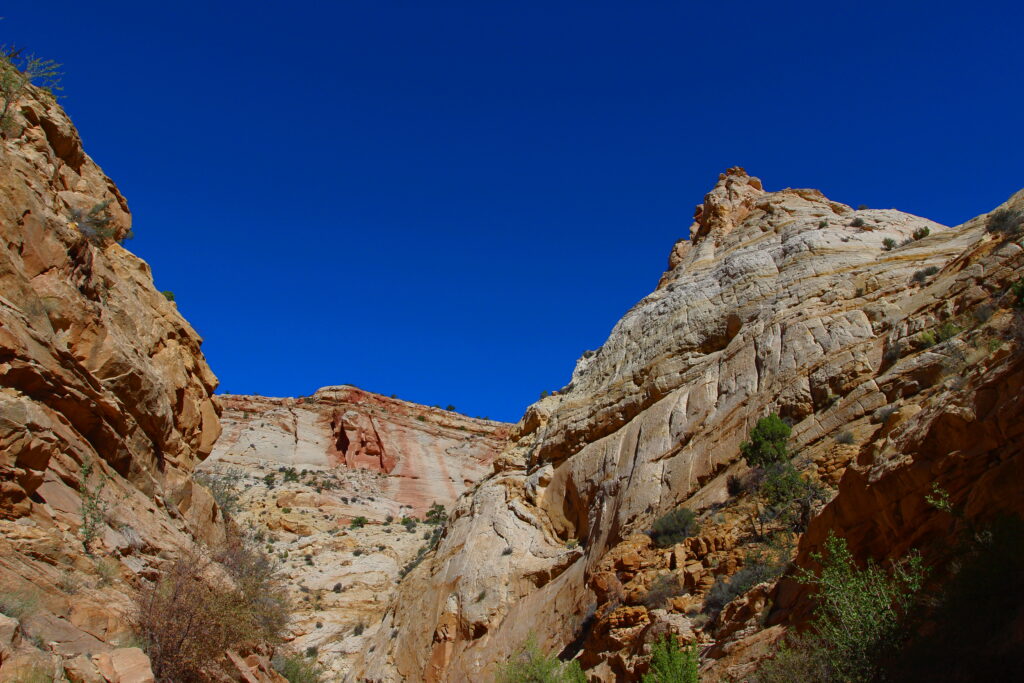
Views in the gulch are magnificent!
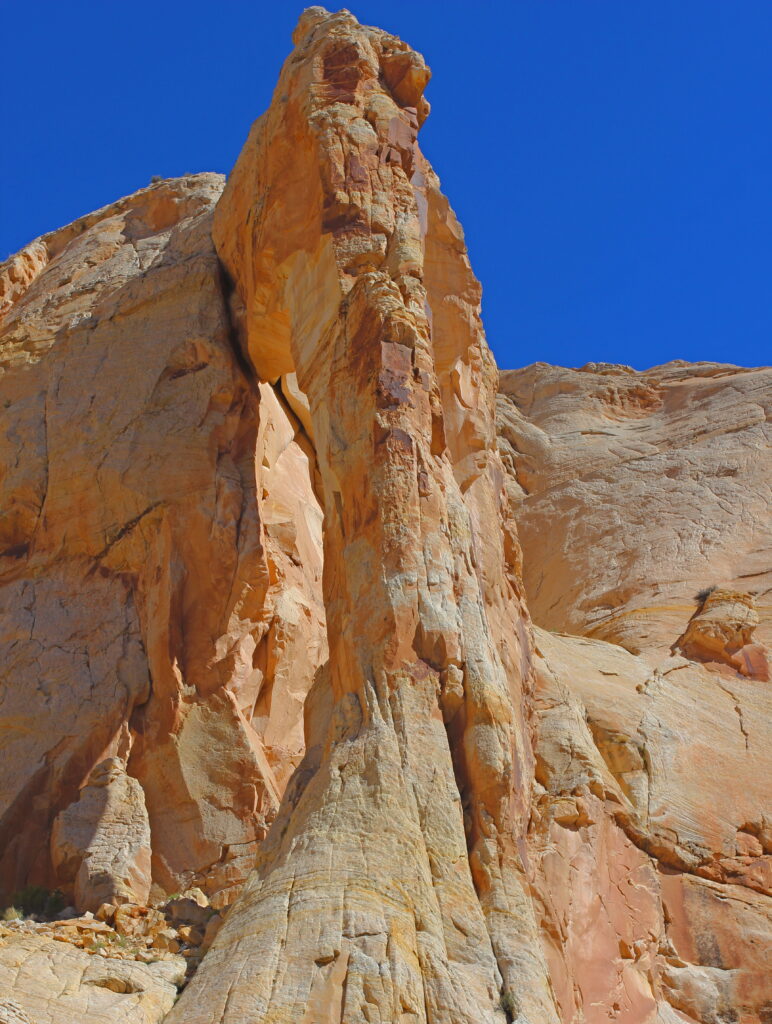
Sheets Gulch Arch
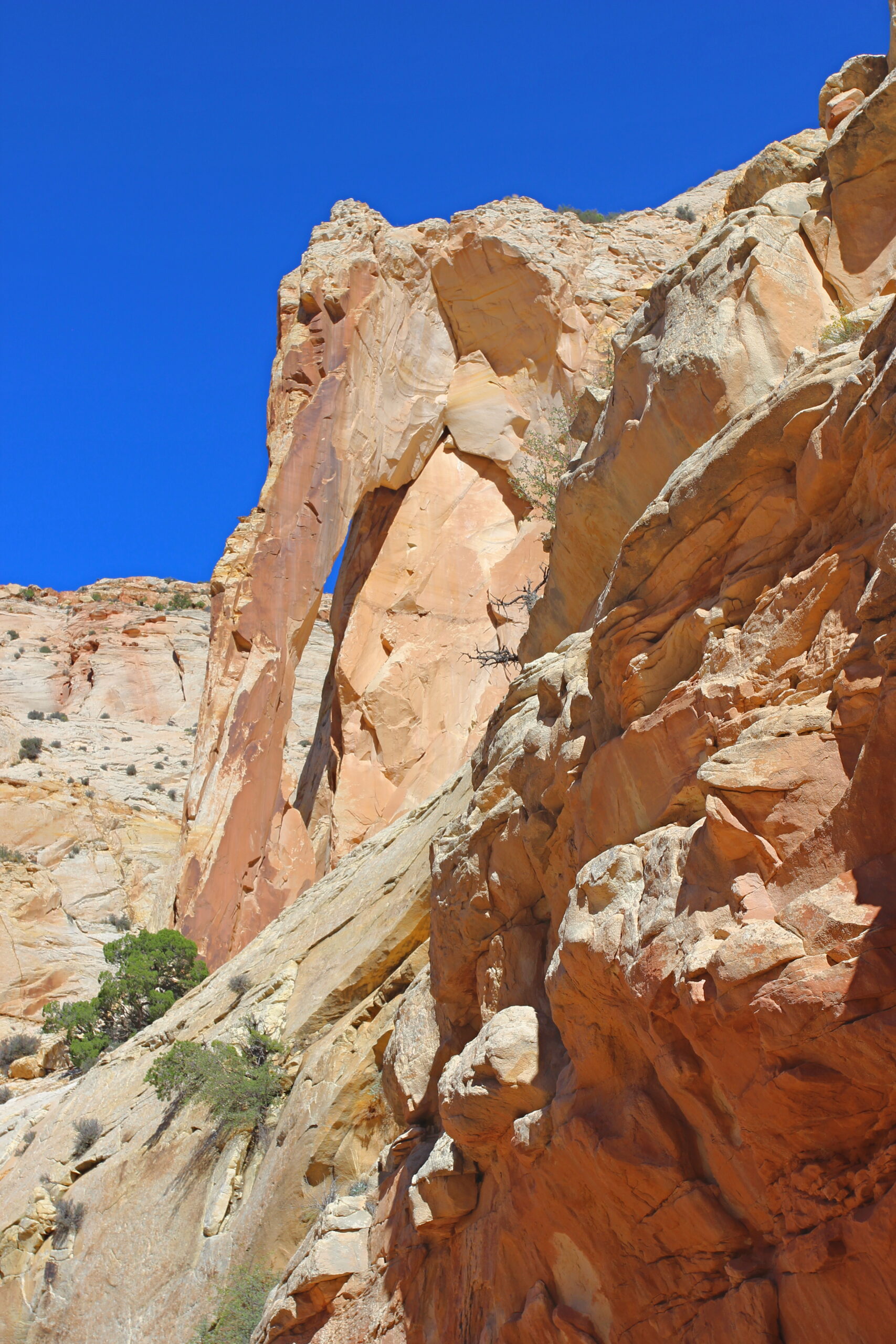
Getting up to Sheets Gulch Arch requires scrambling up a steep slope of loose rock.
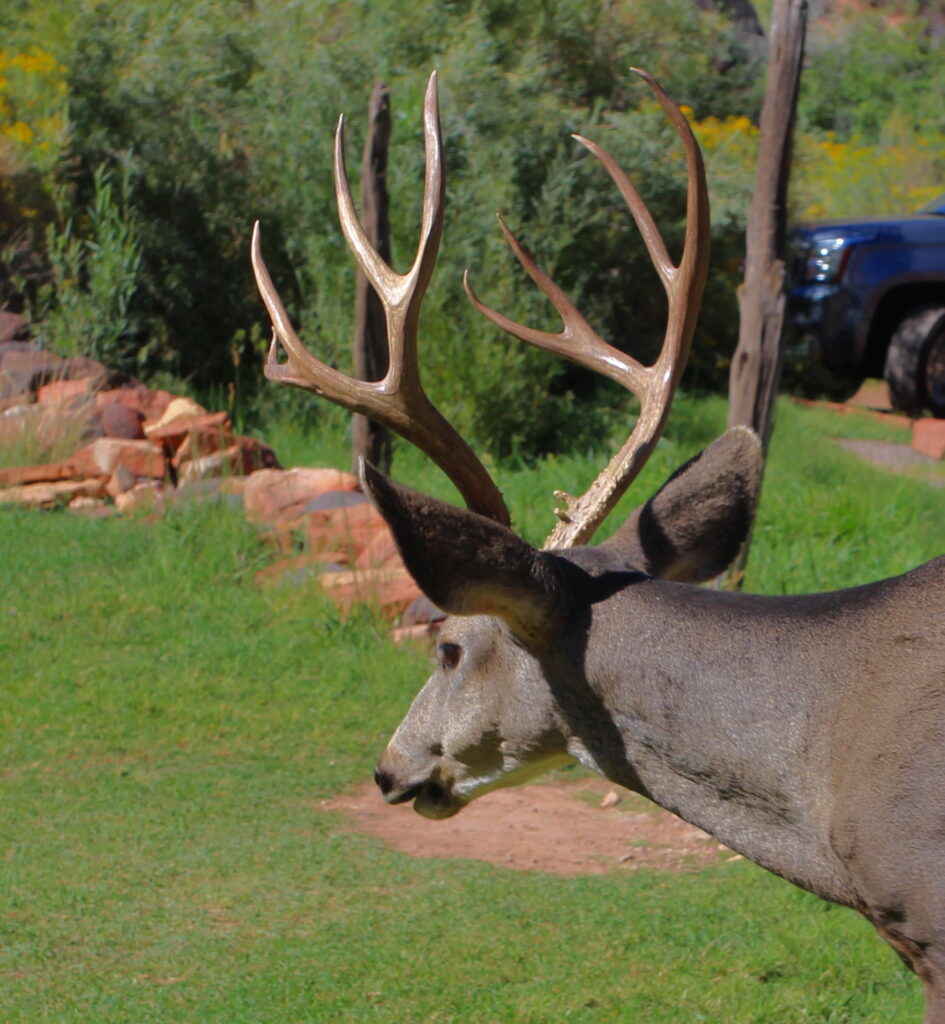
Fruita, a historically restored Mormon village, with a wonderful pie shop. Perhaps this guy wanted some pie.
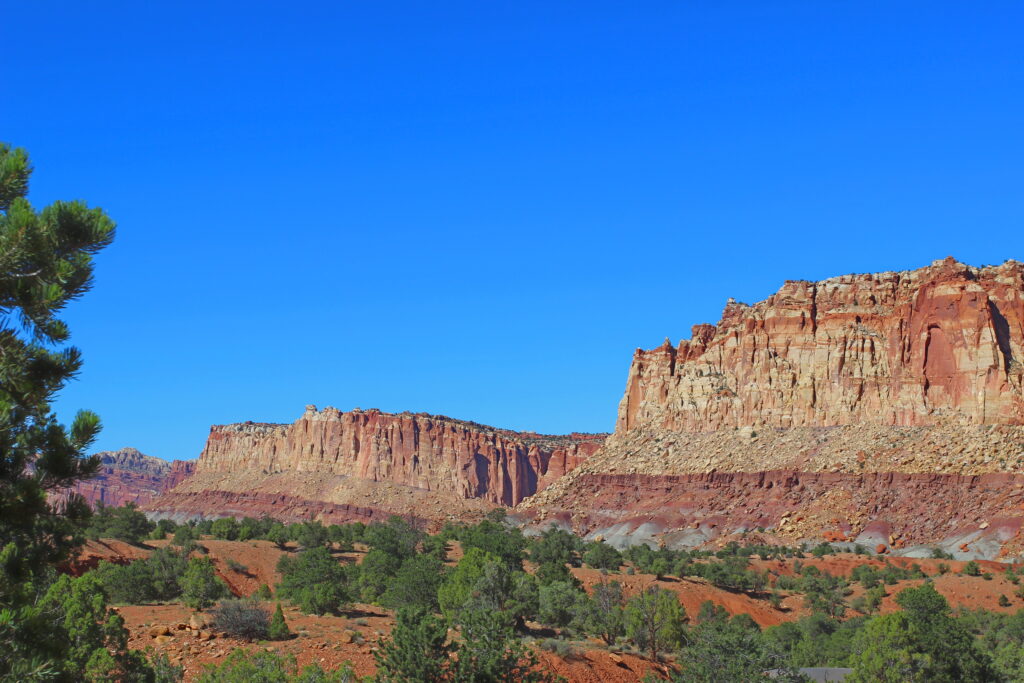
When visiting Capitol Reef, don’t miss the scenic drive.
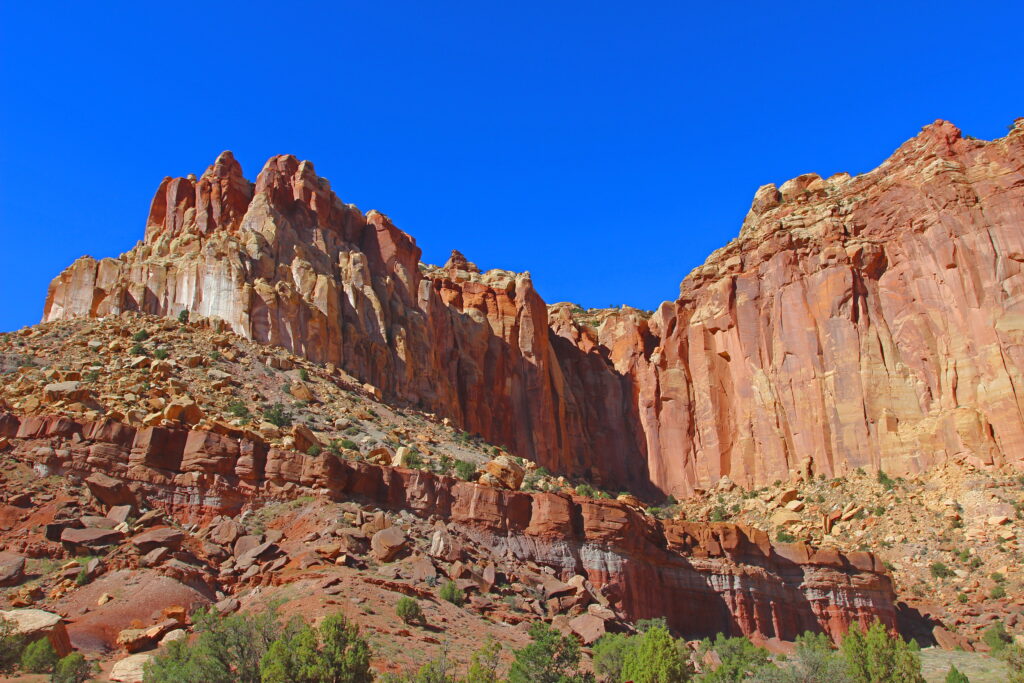
Parking lot at the turn around is majestically scenic.
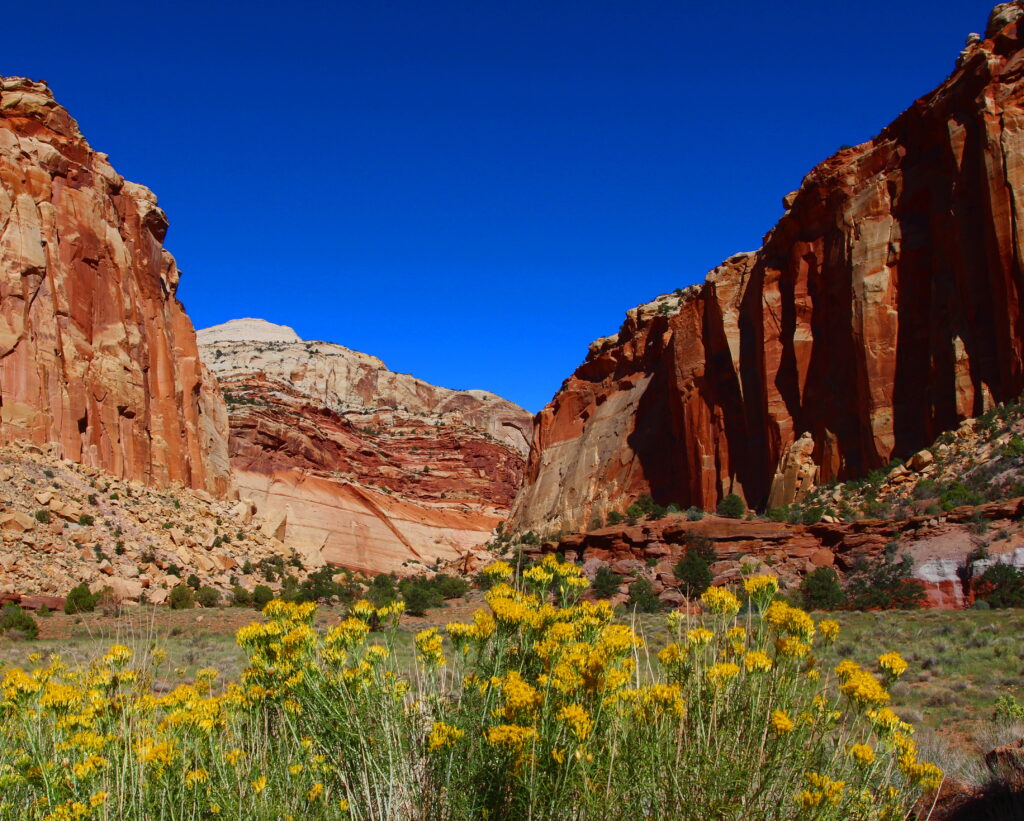
Rabbitbrush in the foreground brings out the colors of the rock formations!
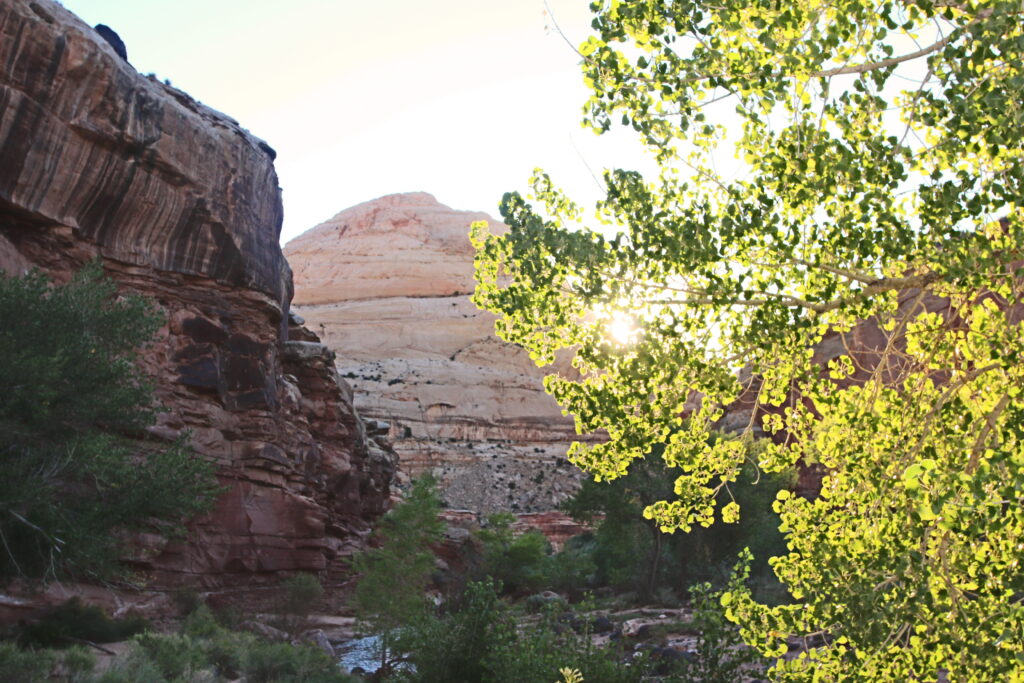
Namesake Capitol Reef dome at trailhead for Hickman Bridge
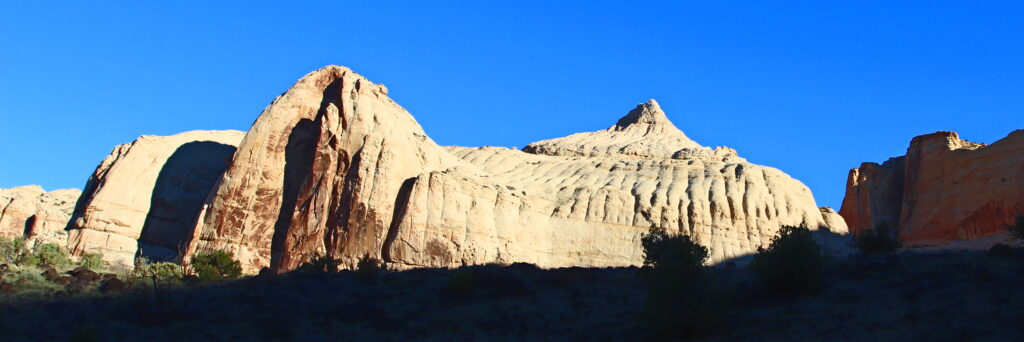
View from the trail
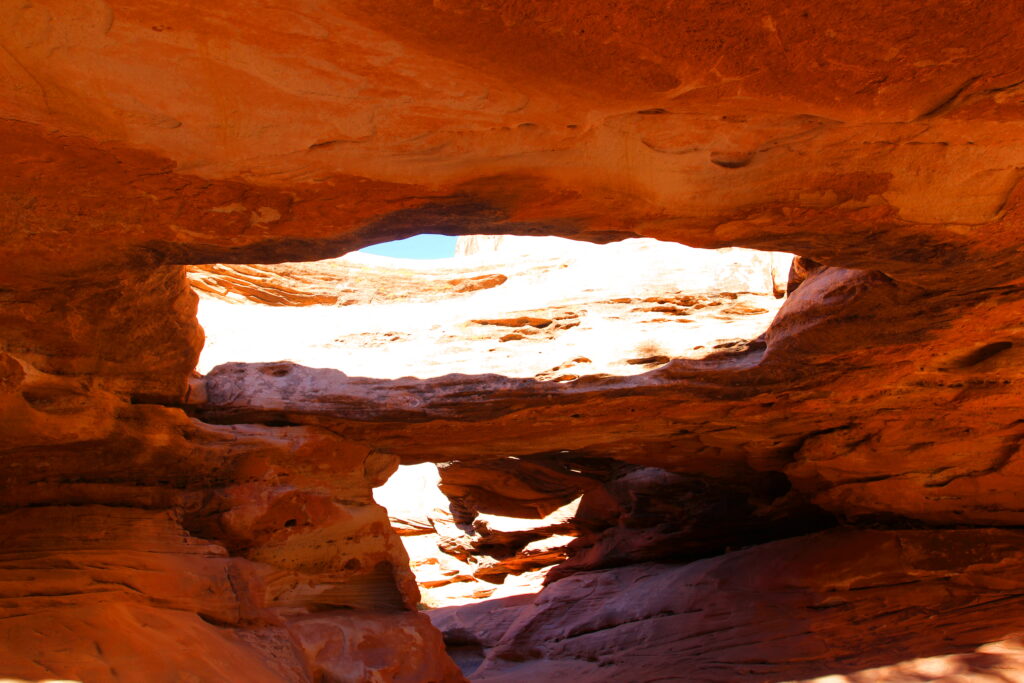
Nels Johnson Natural Bridge, a small bonus hiking to Hickman Bridge
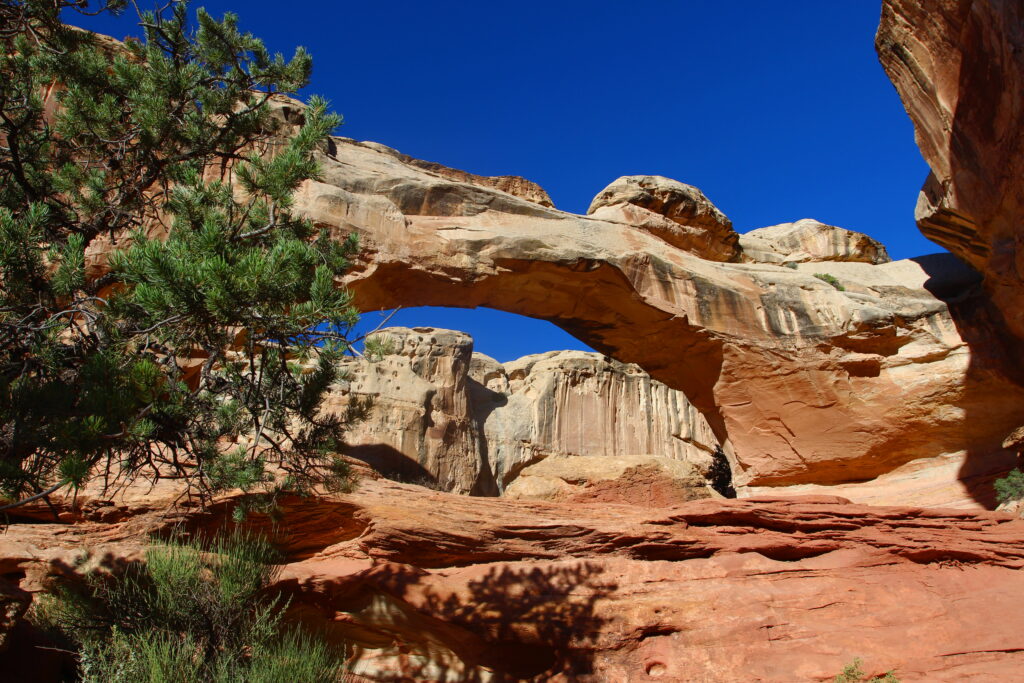
Hickman Bridge, steep one mile trail to, perhaps, parks most popular featue
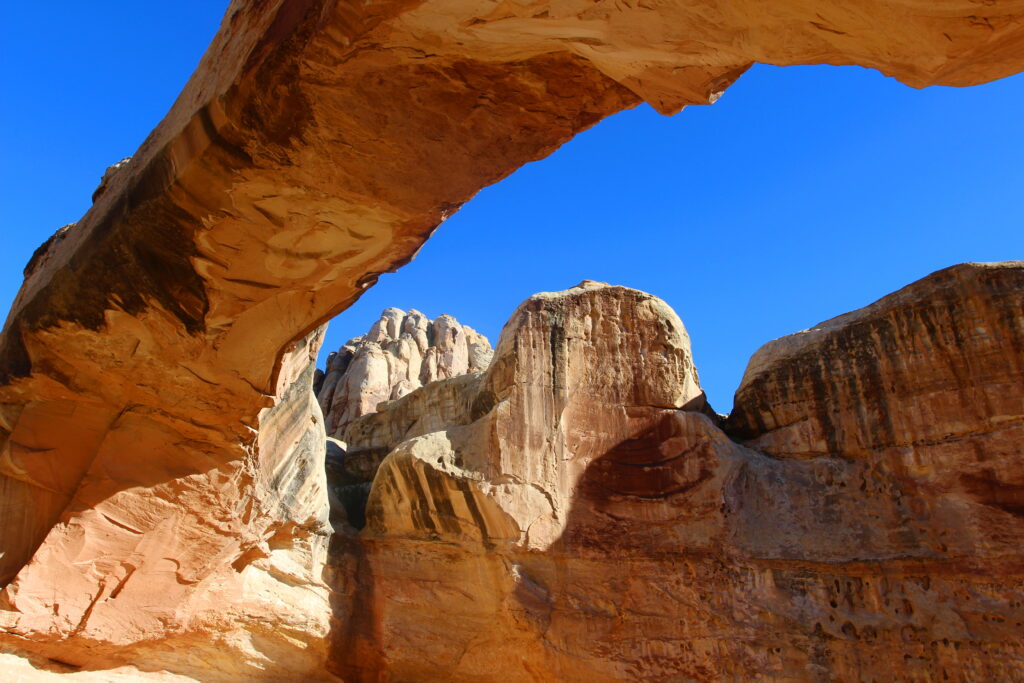
Photographers’ favorite view of the arch
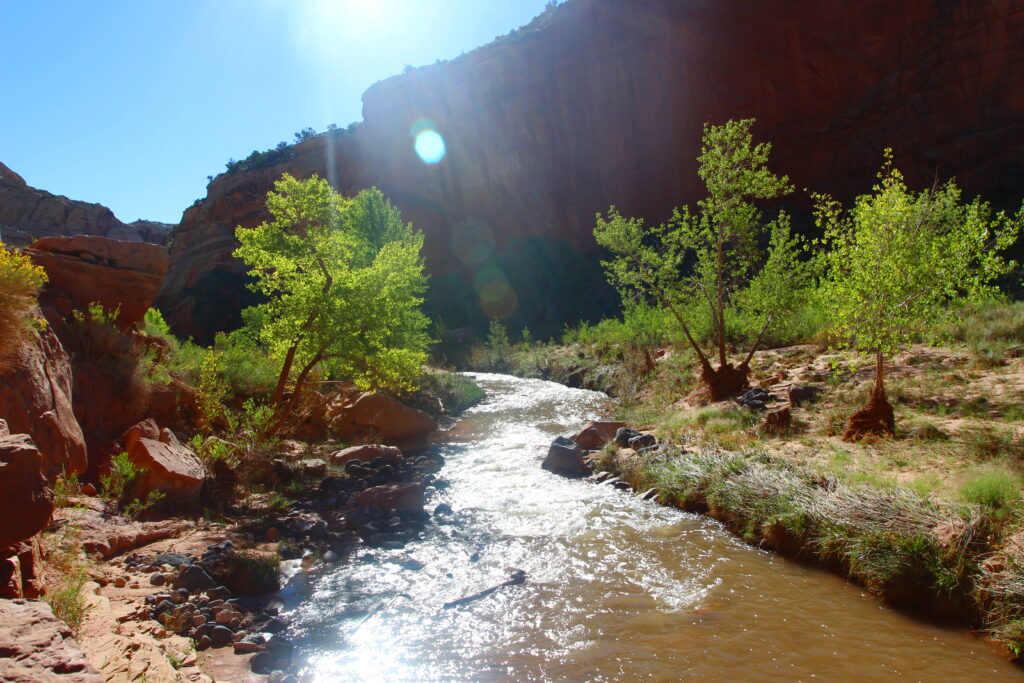
Fremont River at base of Hickman Bridge trailhead
Saying good-bye to Capitol Reef National Park
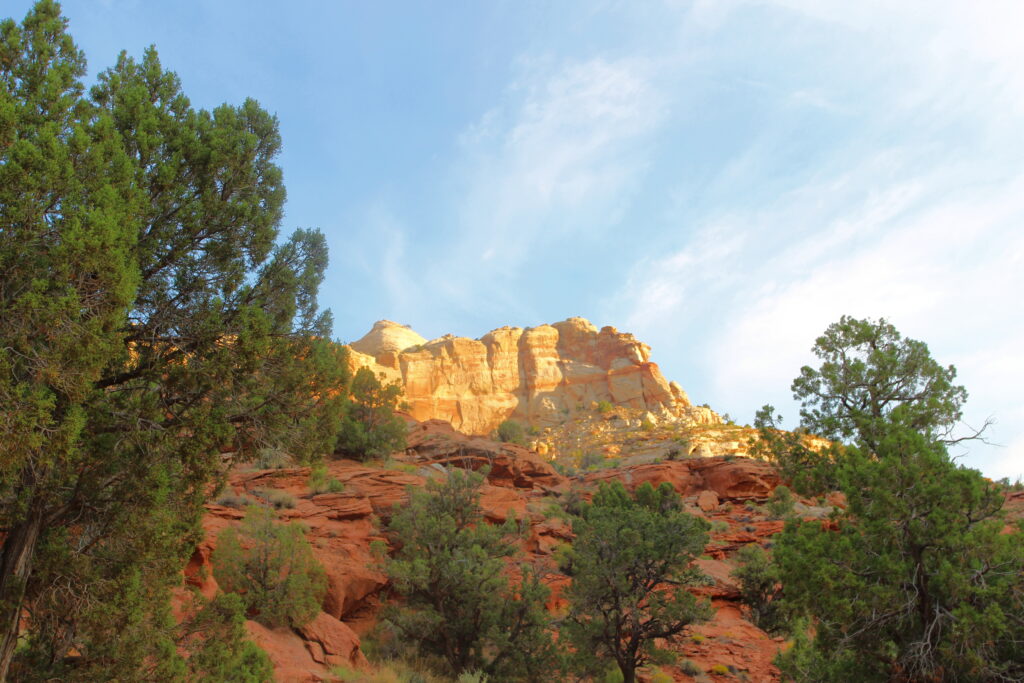
On to Grand Staircase – Escalante National Monument
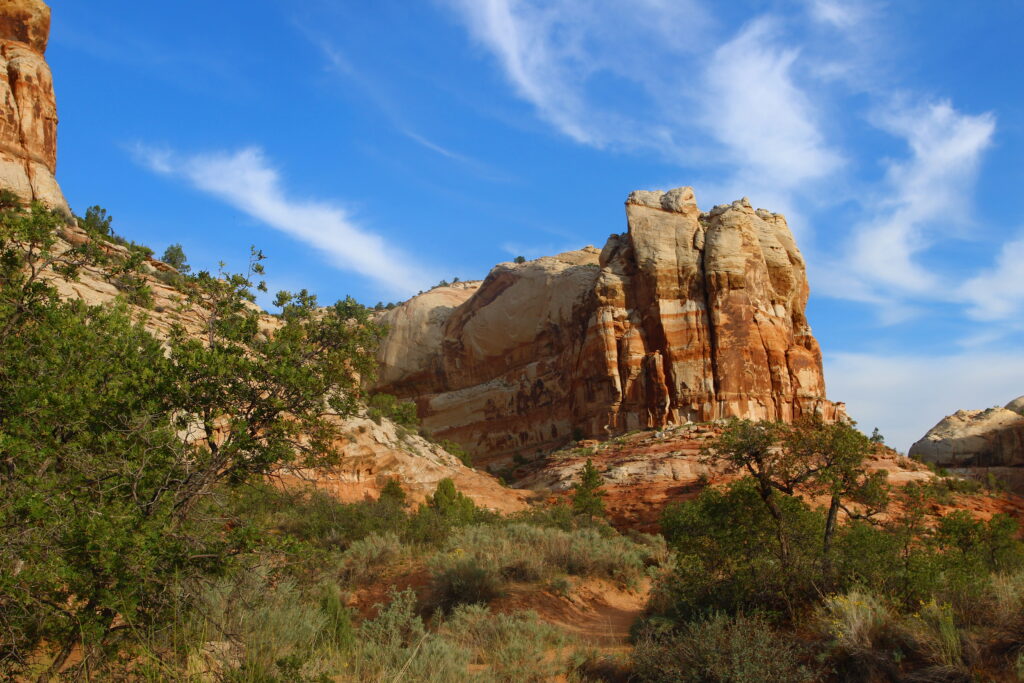
Beautiful morning hike to Lower Calf Creek Falls
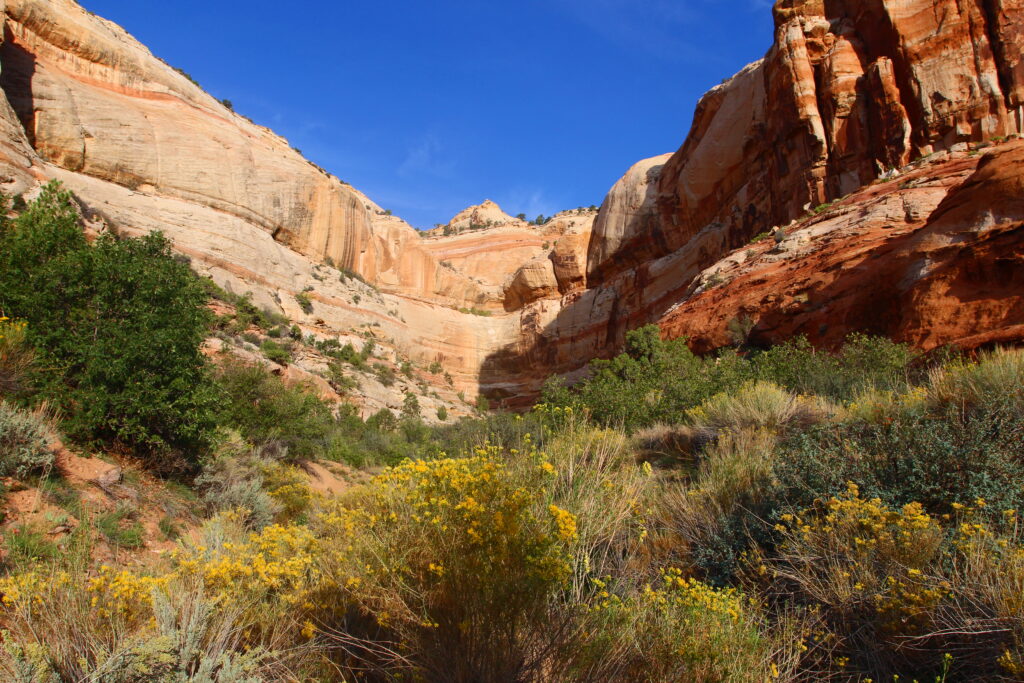
Easy flat hike
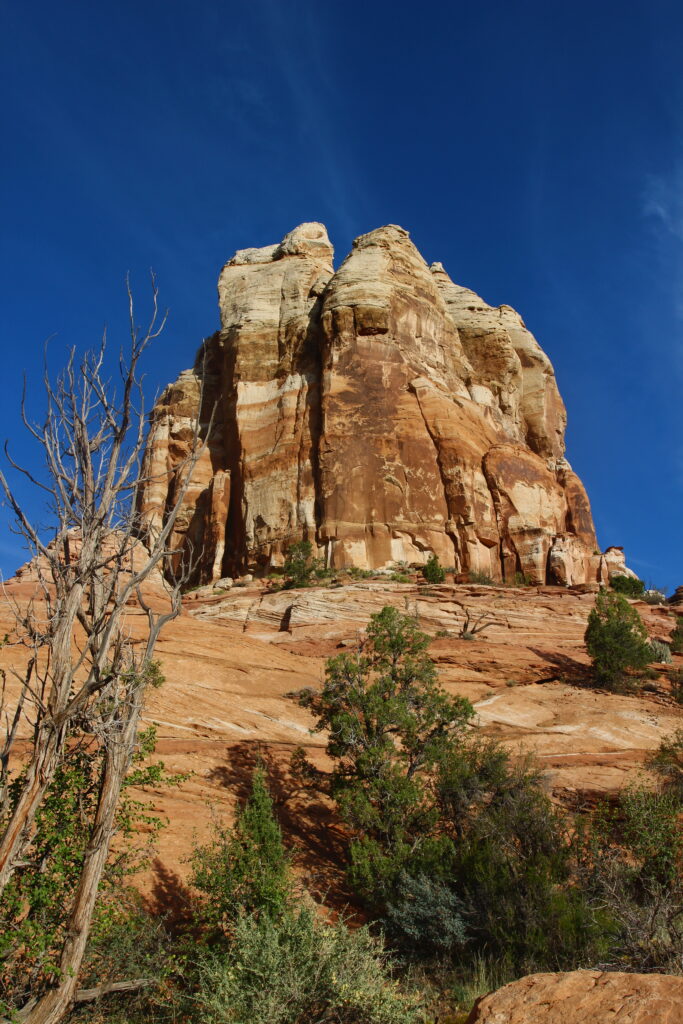
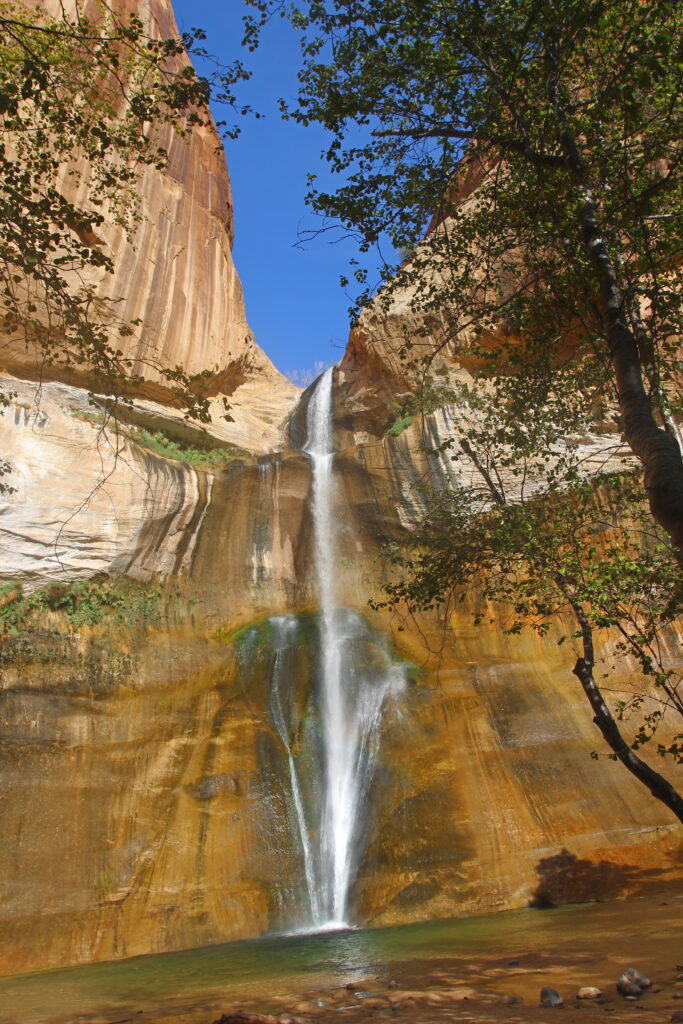
Lower Calf Creek Falls, 130 feet high with a swimable pool at the base if you can take the cold water
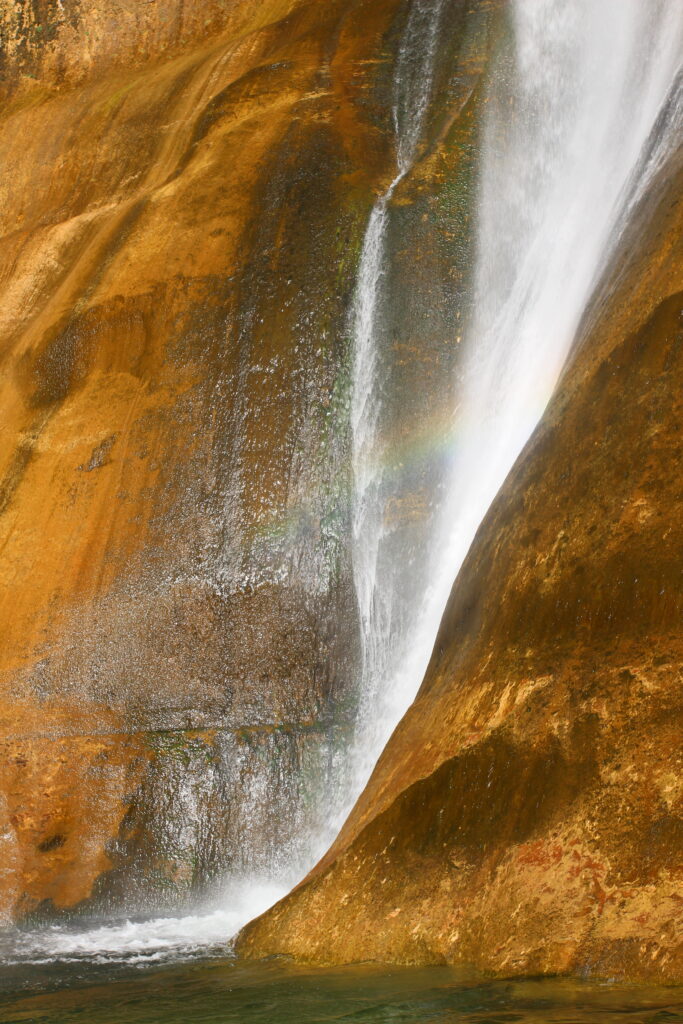
A bit of a rainbow in the mist
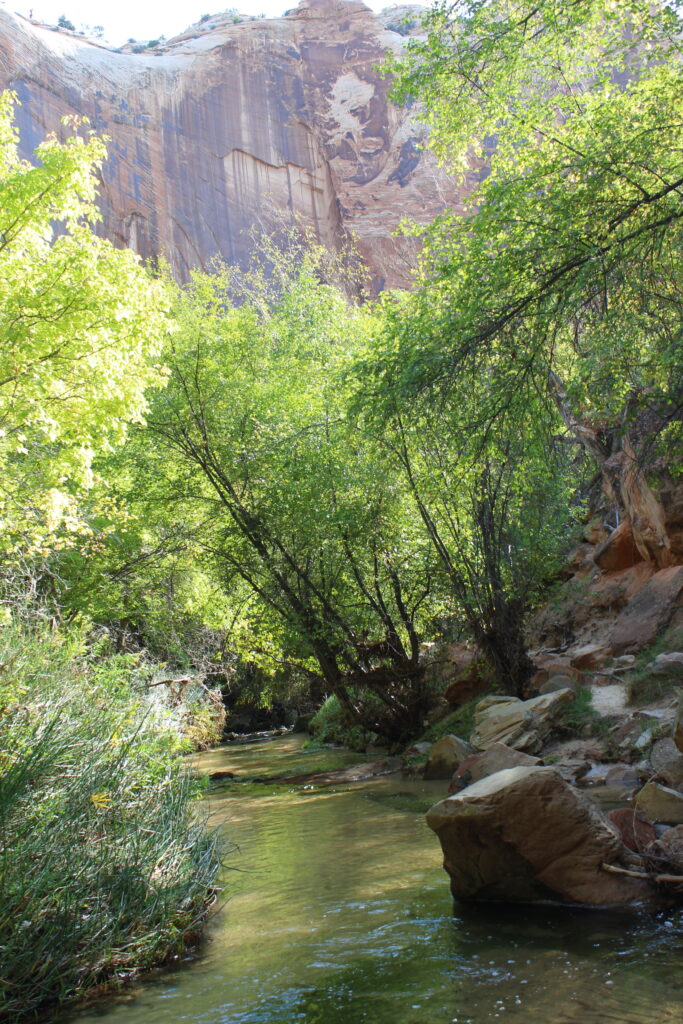
Calf Creek which feeds the falls
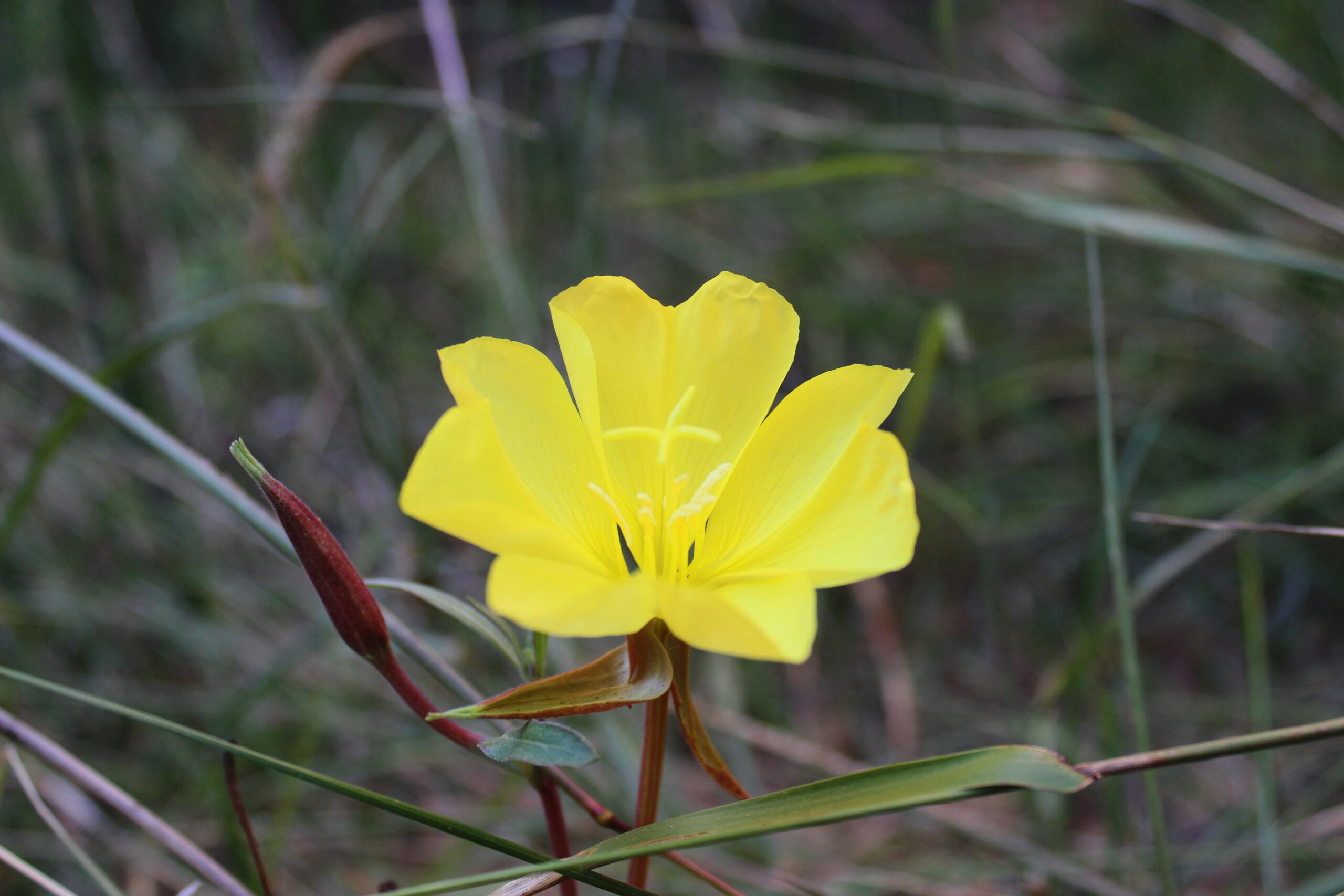
Desert primrose – amazing what some water does to the desert
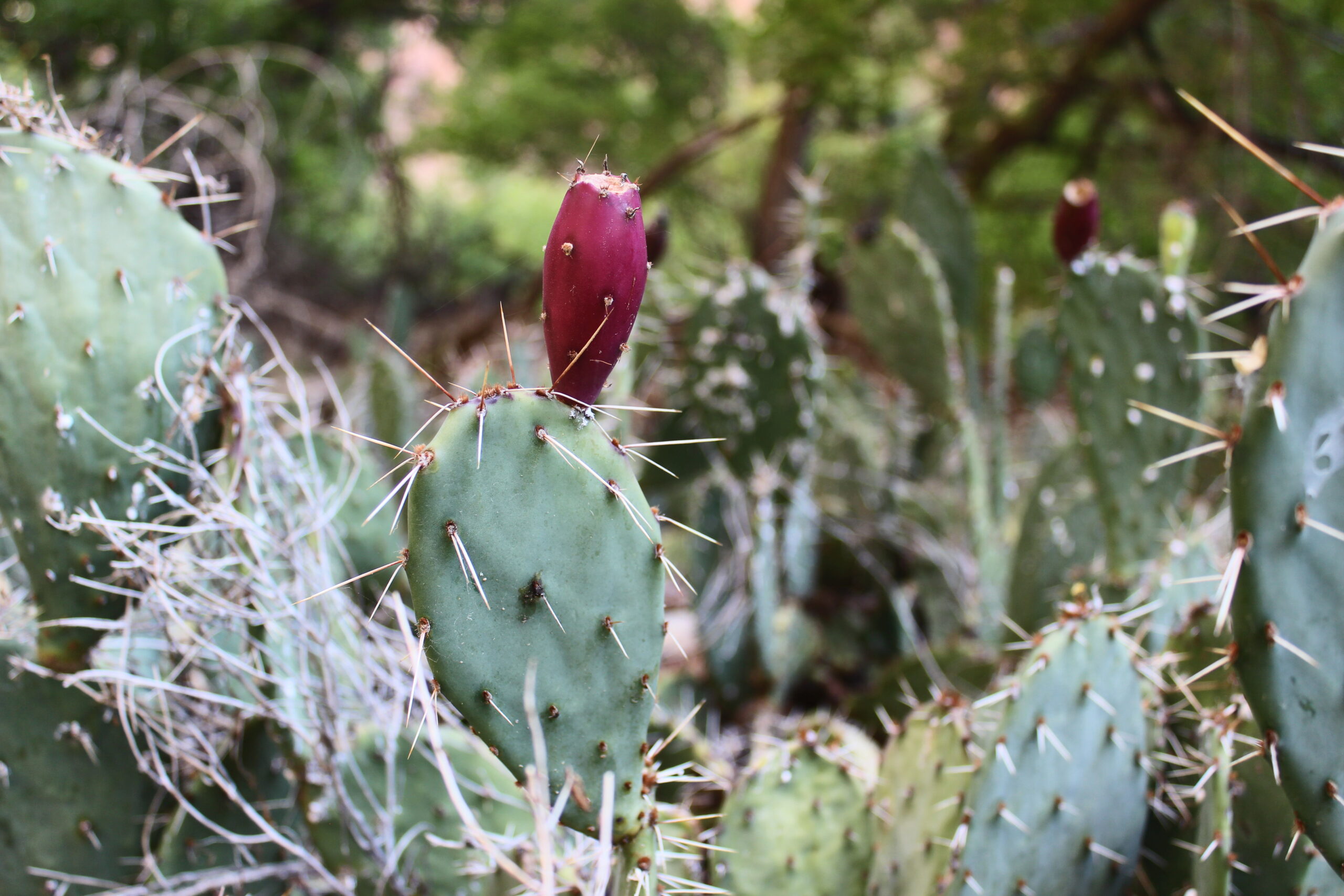
Prickly pear
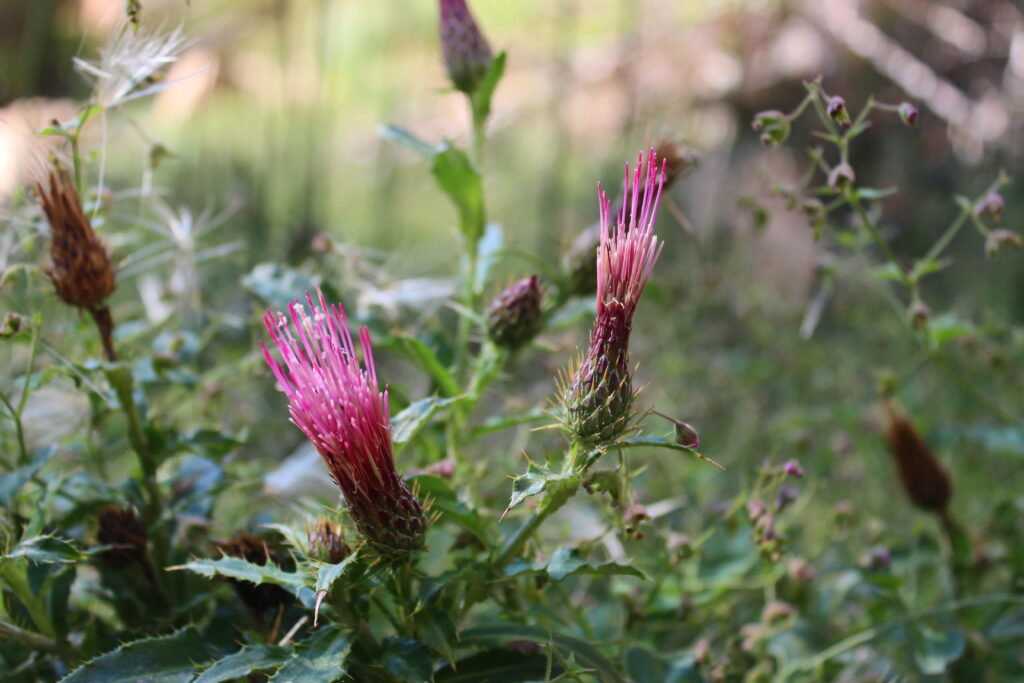
Thistle
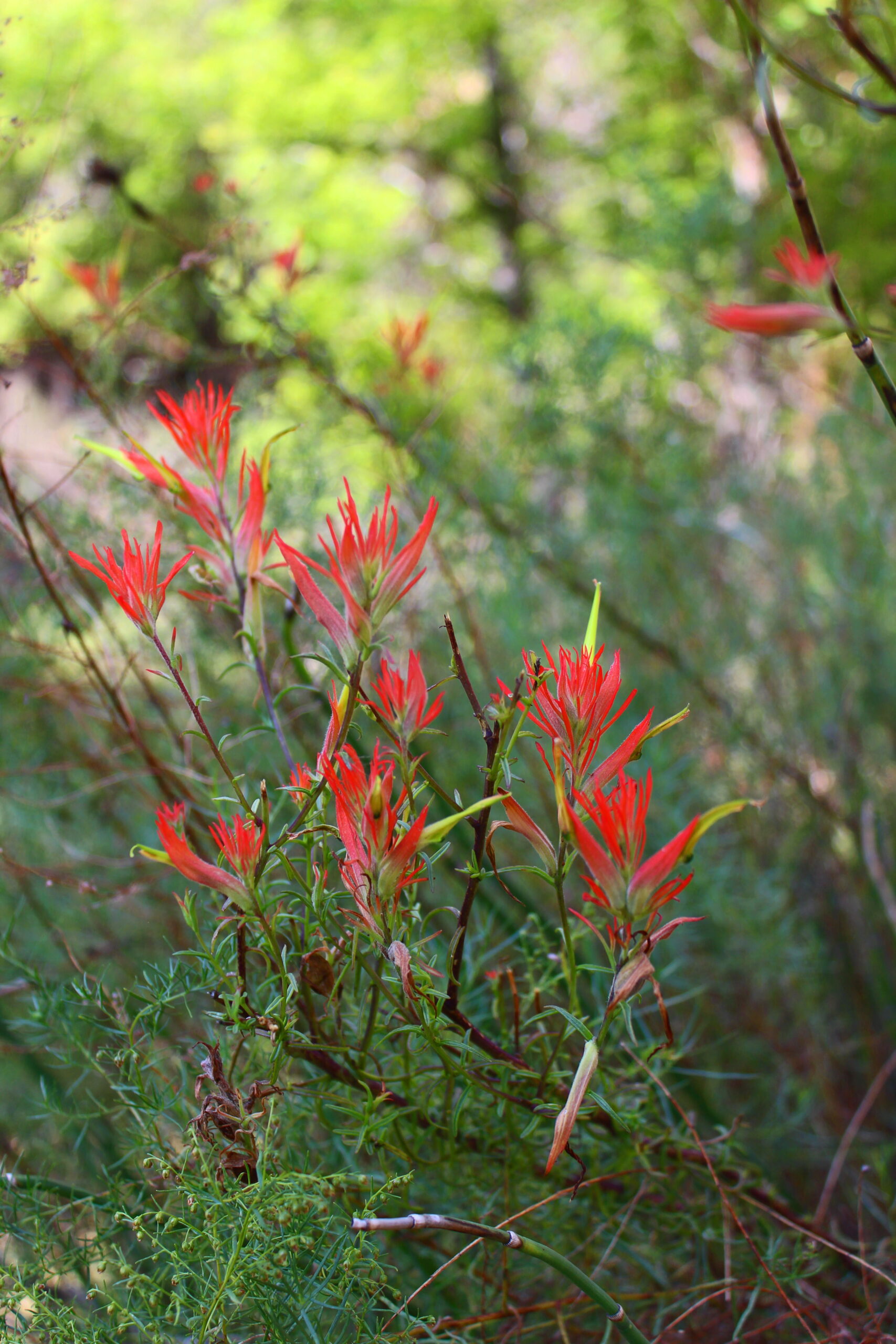
Indian paintbrush
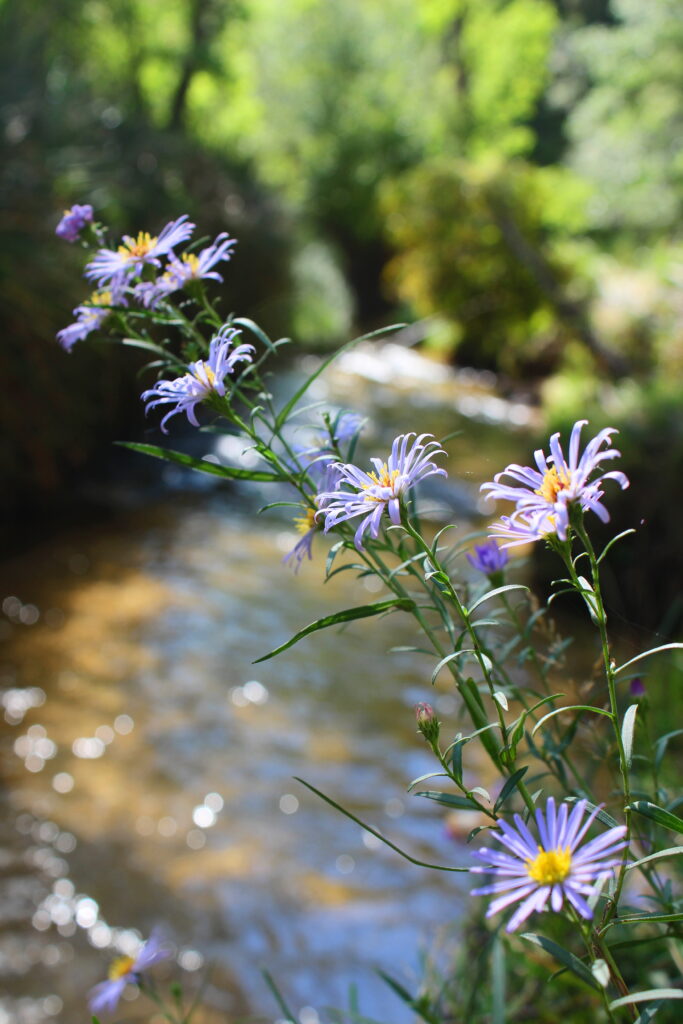
Asters
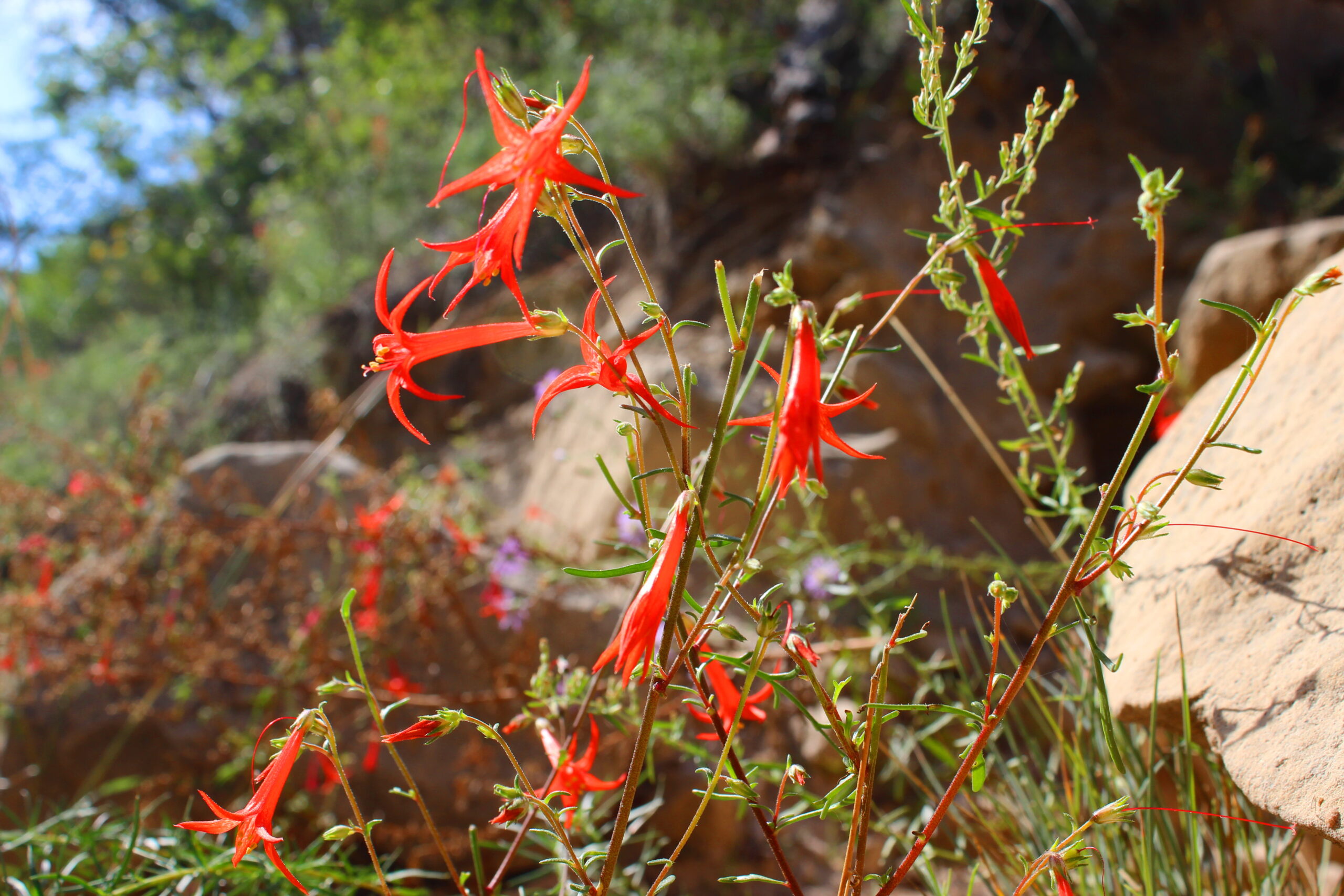
Scarlet trumpet also known as skyrocket
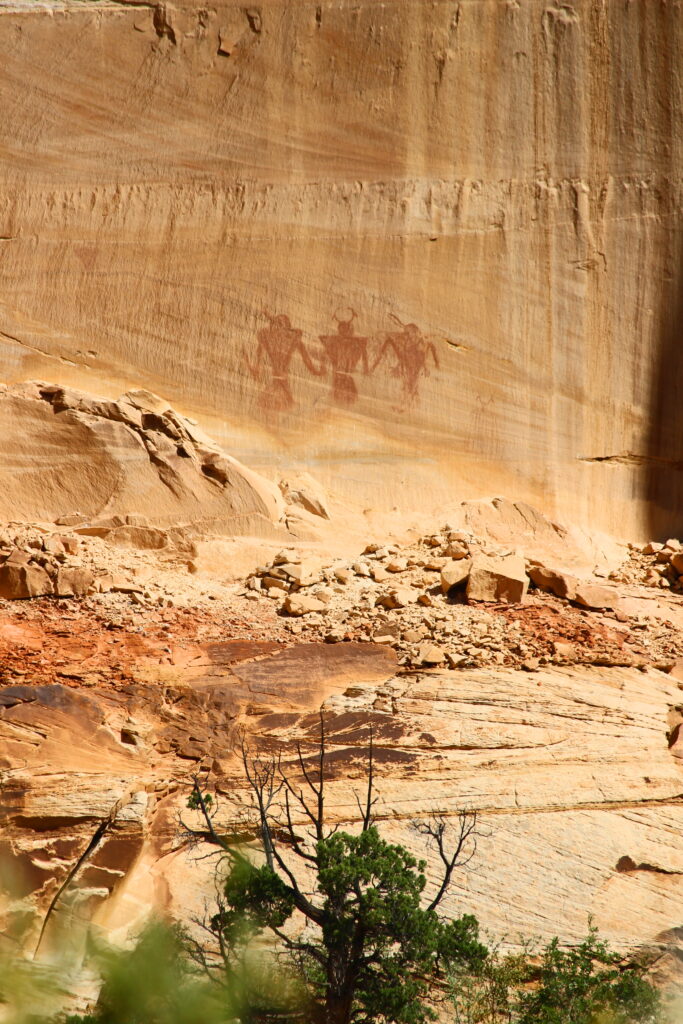
Pictograph, three human-like figures painted in red wearing headdresses and holding hands, 700 – 1300 AD., are from the Fremont people, a pre-Columbian culture of the area.
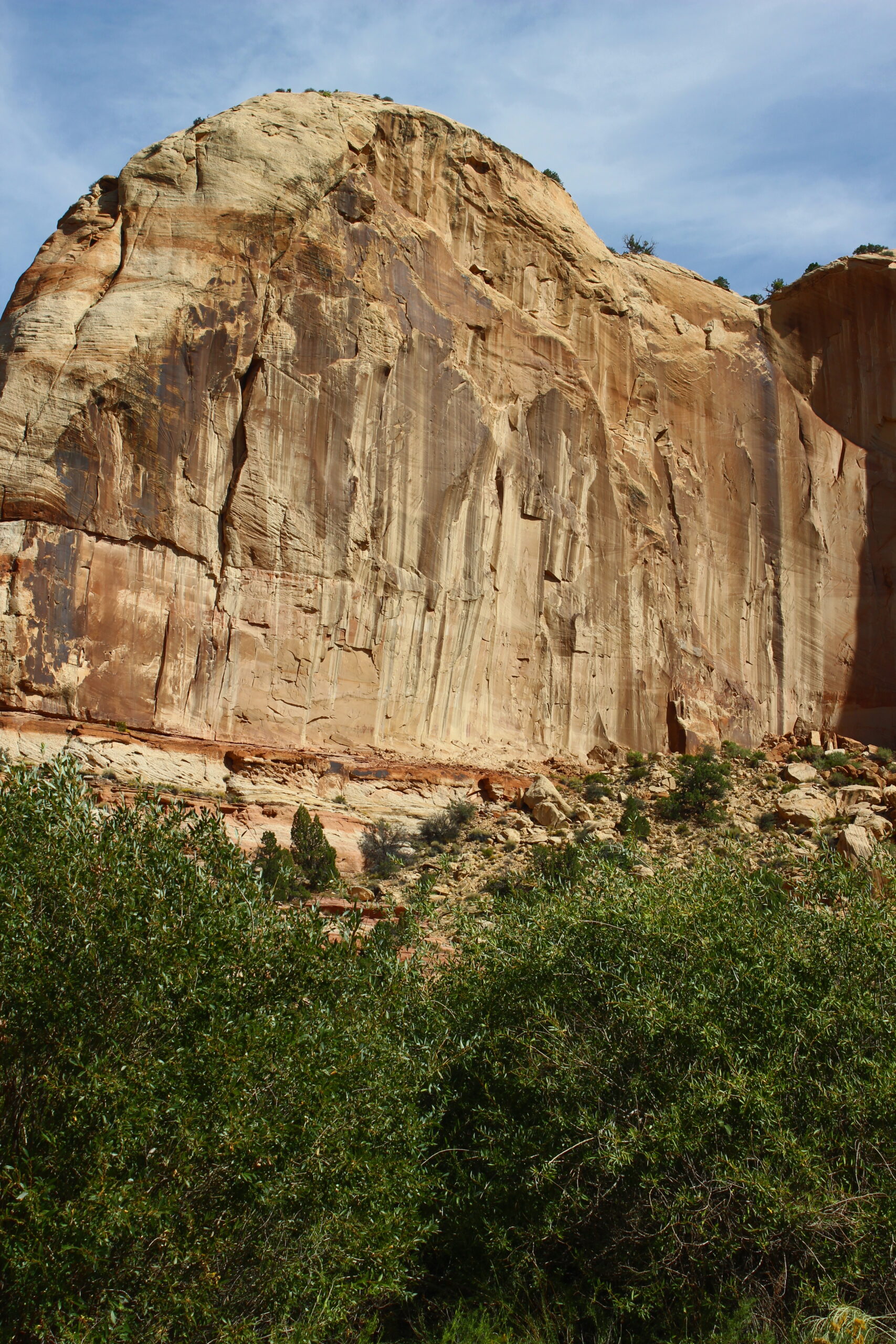
Desert varnish, an interesting phenomenon caused by microbes of oxidizing iron and manganese
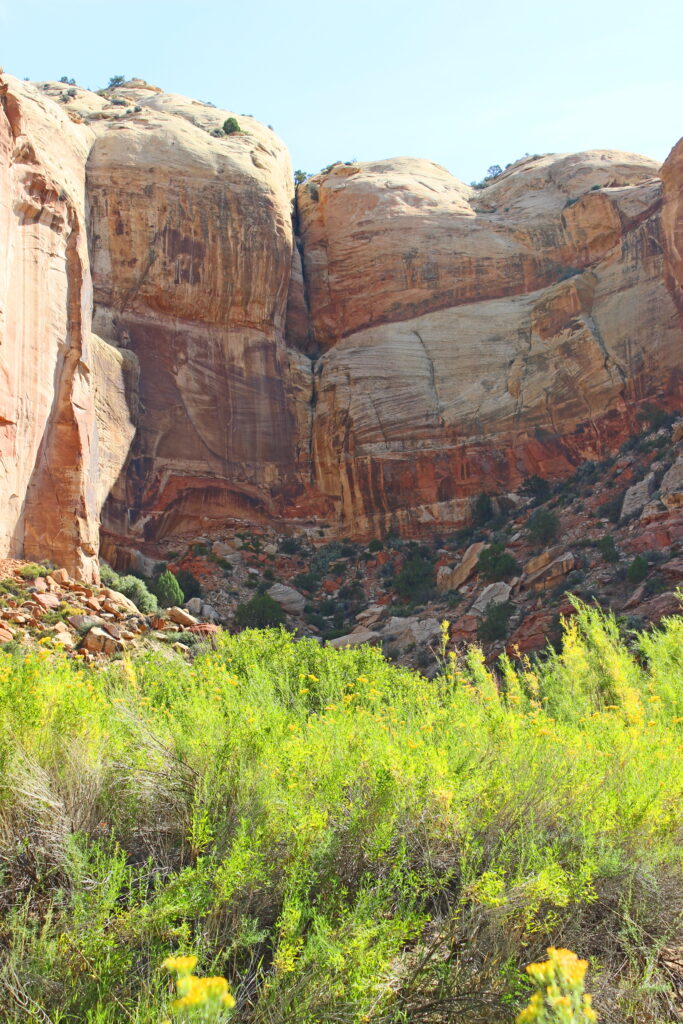
Lush rabbitbrush showcasing the desert varnish
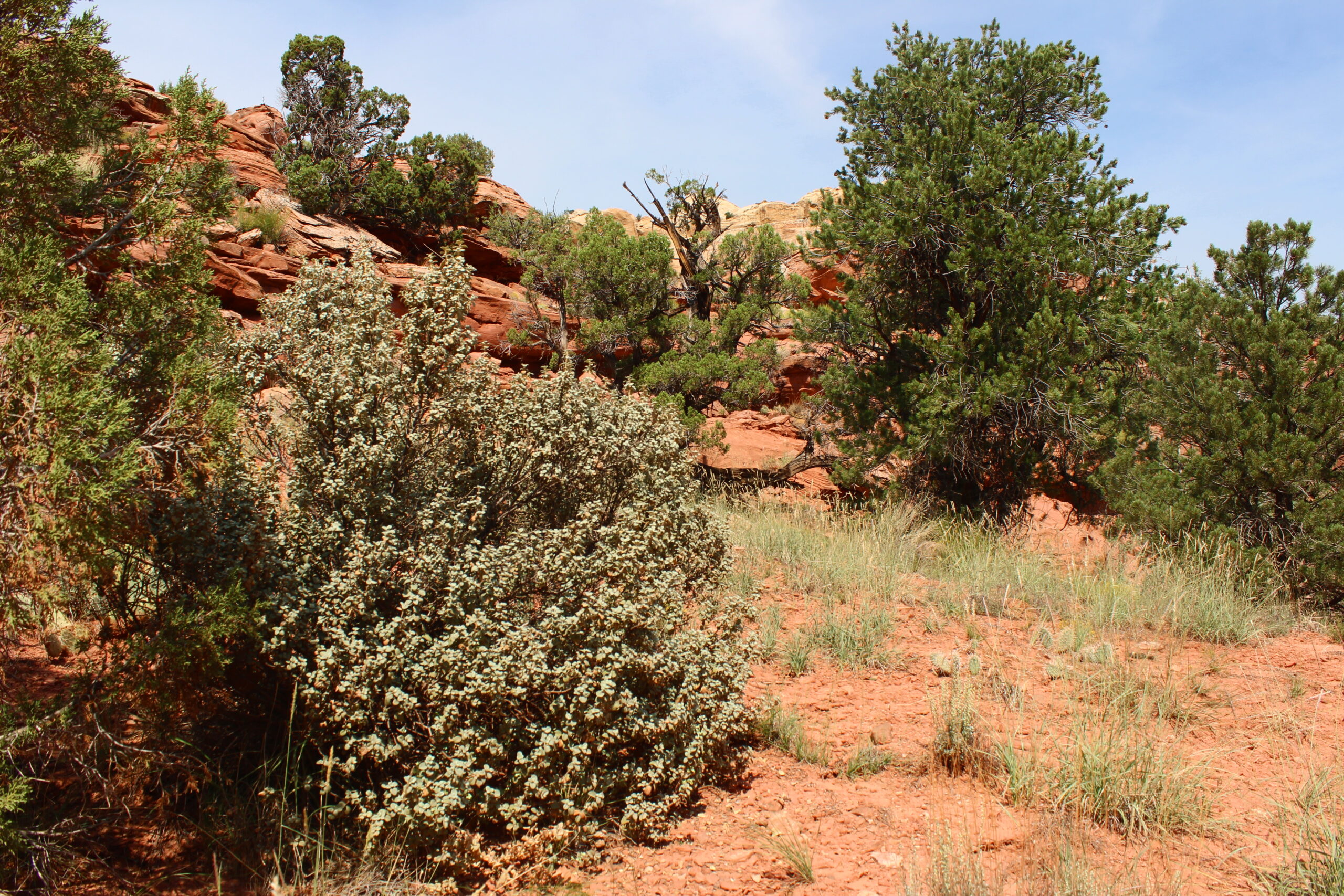
Buffaloberry, Shepherdia rotundifolia, grows only in the Colorado Plateau of the Southwest. It is called that because settlers used the cooked berries in a sauce for eating buffalo meat.
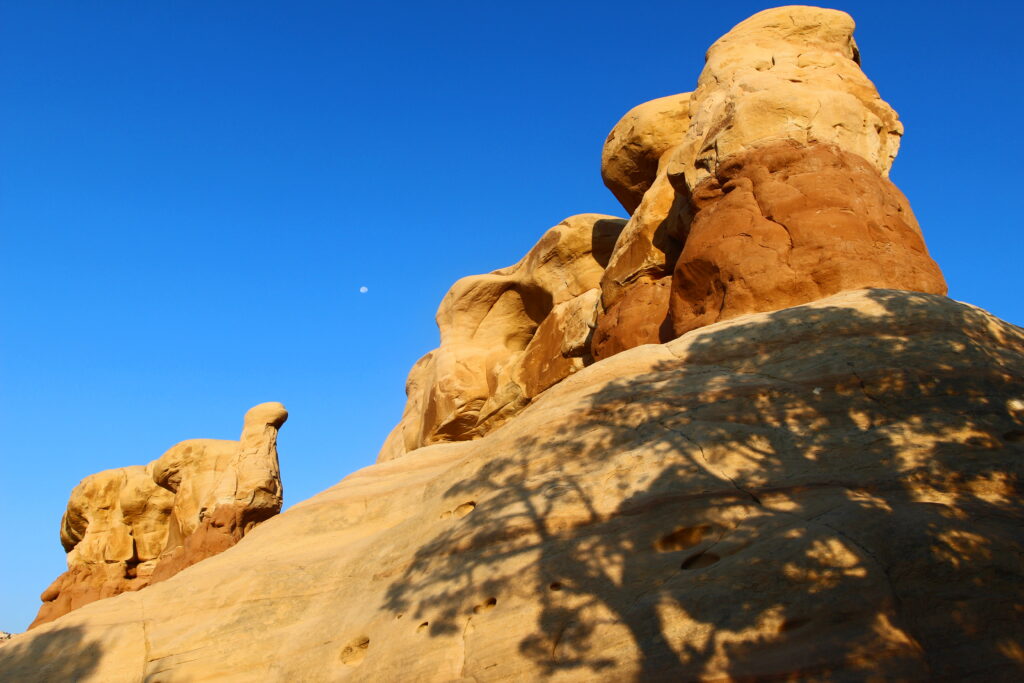
Devil’s Garden, a delightful area of formations on the rough and rugged Hole in the Rock Road
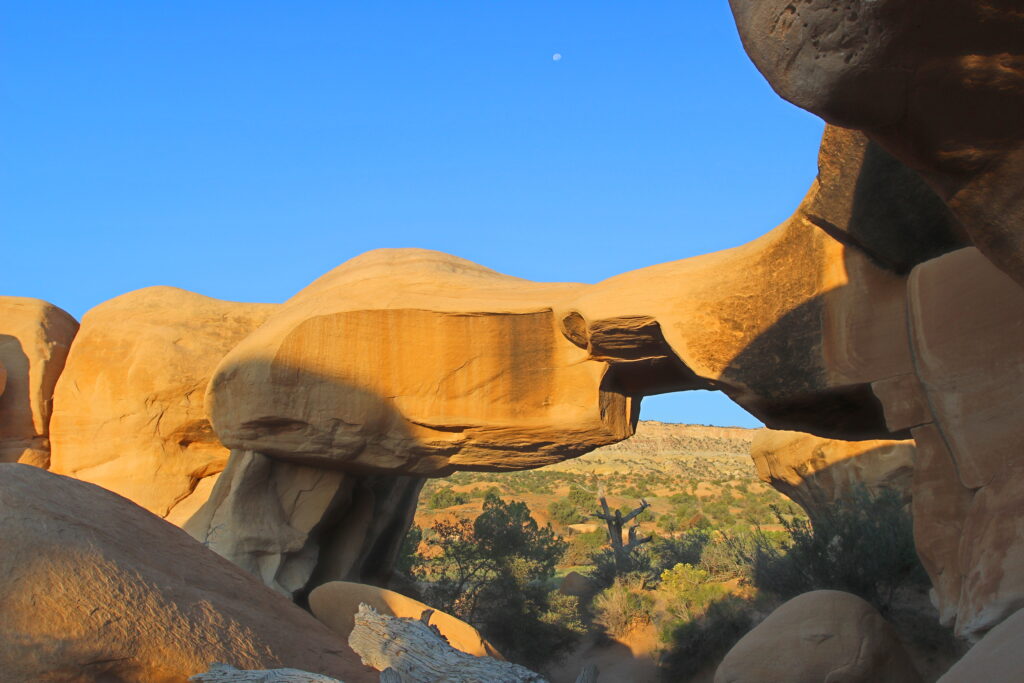
Mano Arch of Devil’s Garden
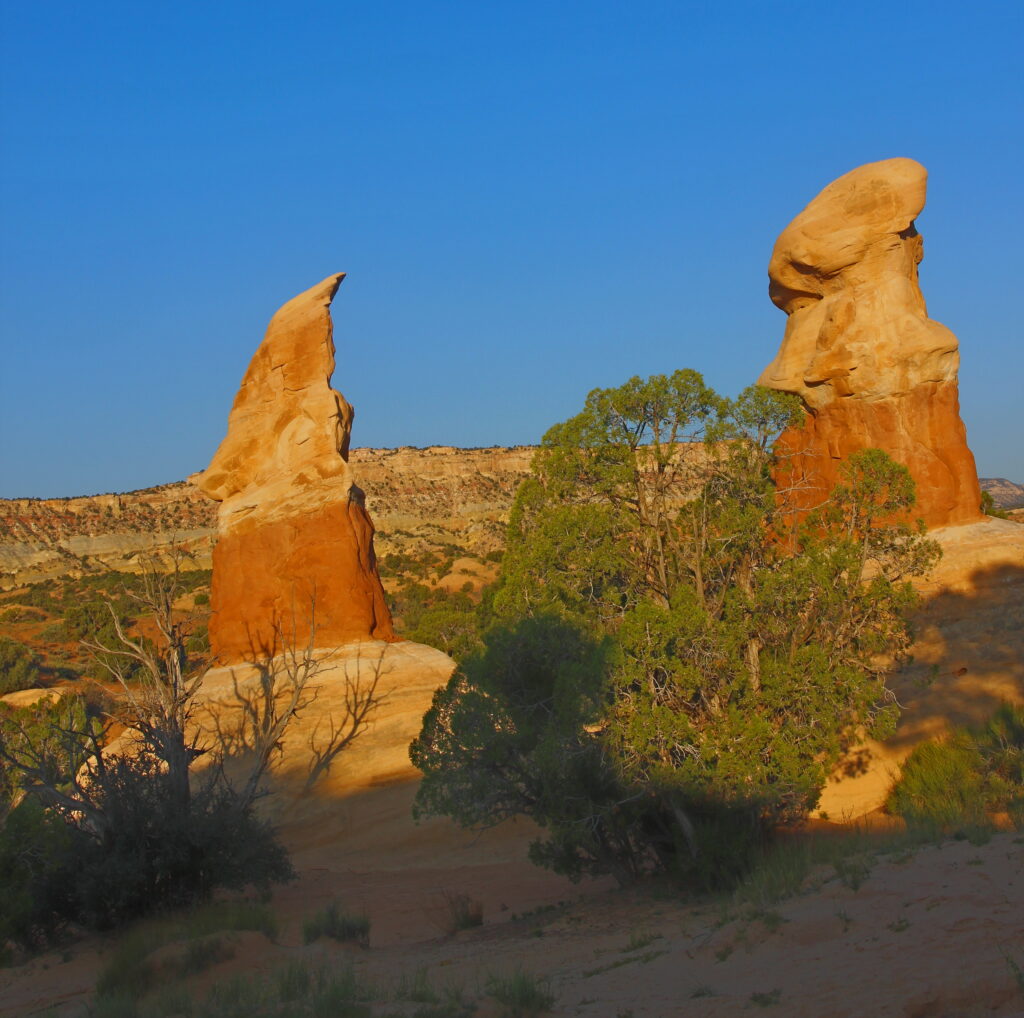
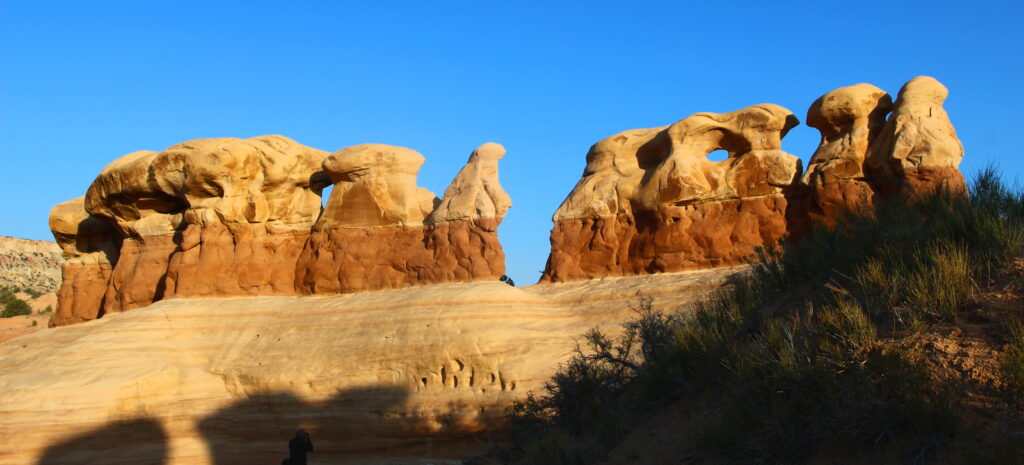
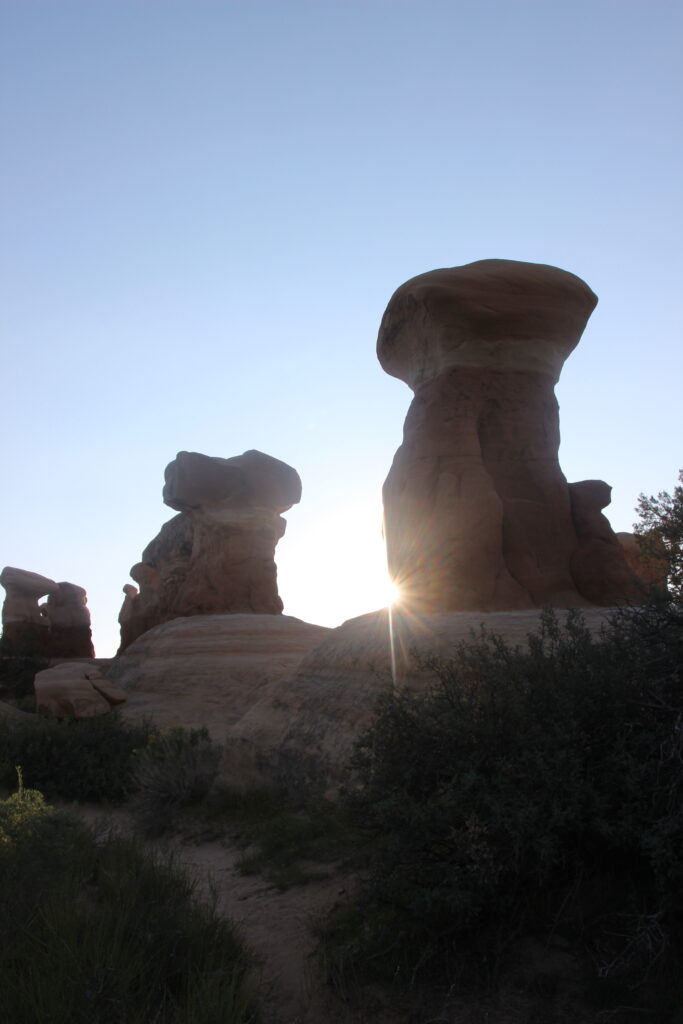
Catching the morning sun in Devil’s Garden
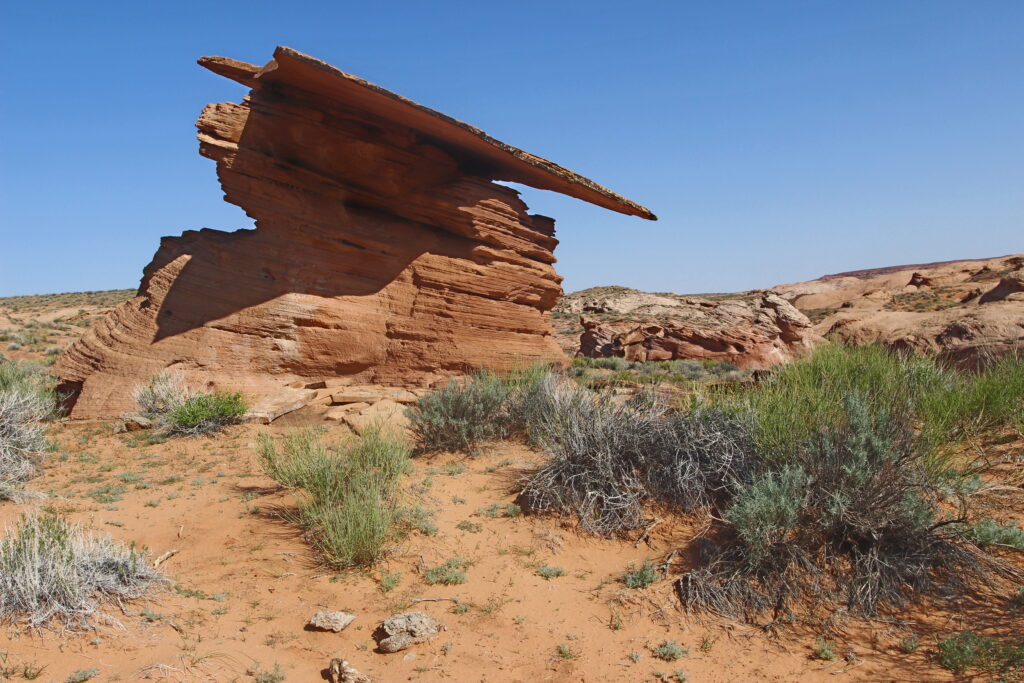
Trailhead to Broken Bow Arch: a vigorous drive down Hole in the Rock Road and then navigating a difficult to follow trail
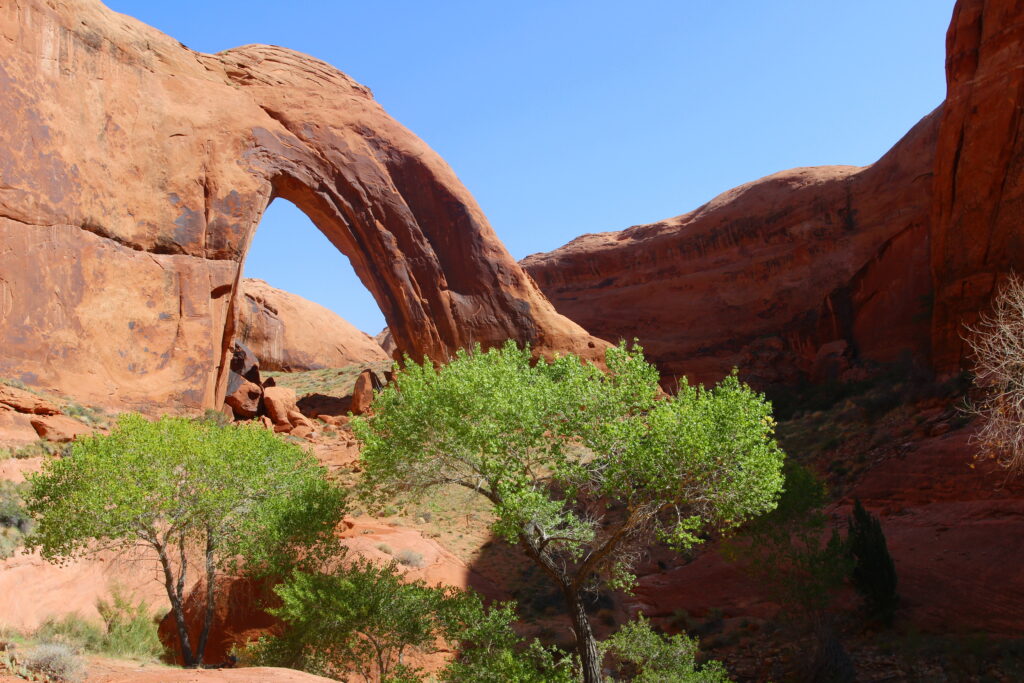
Broken Bow Arch, spanning nearly 100 feet
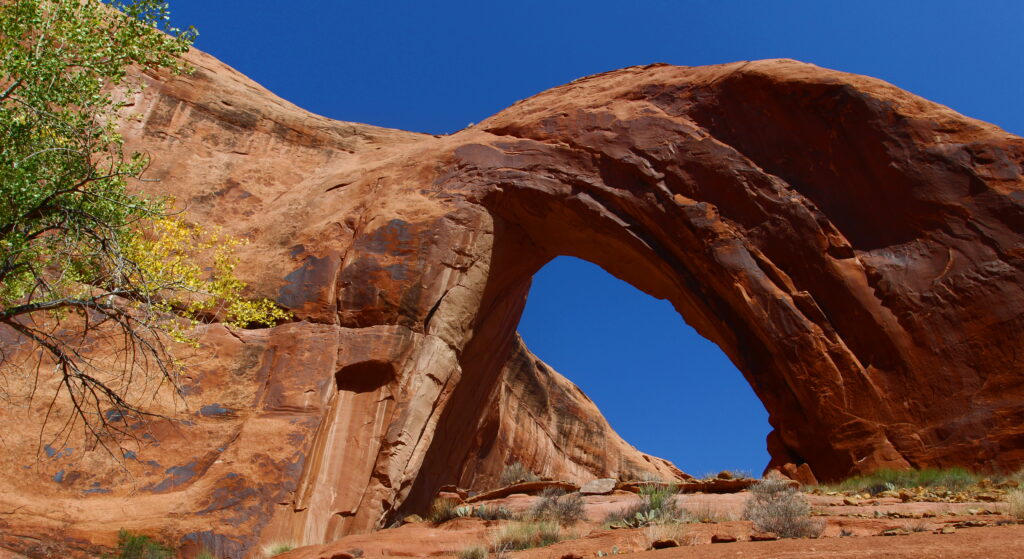
Worth the hike!
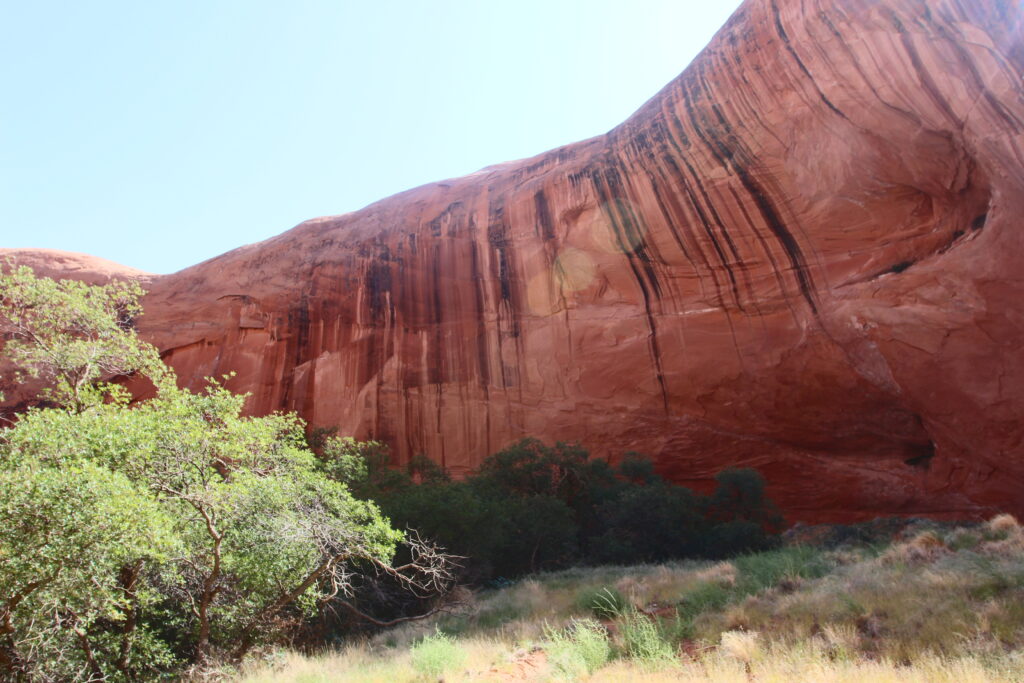
Excellent example of desert varnish
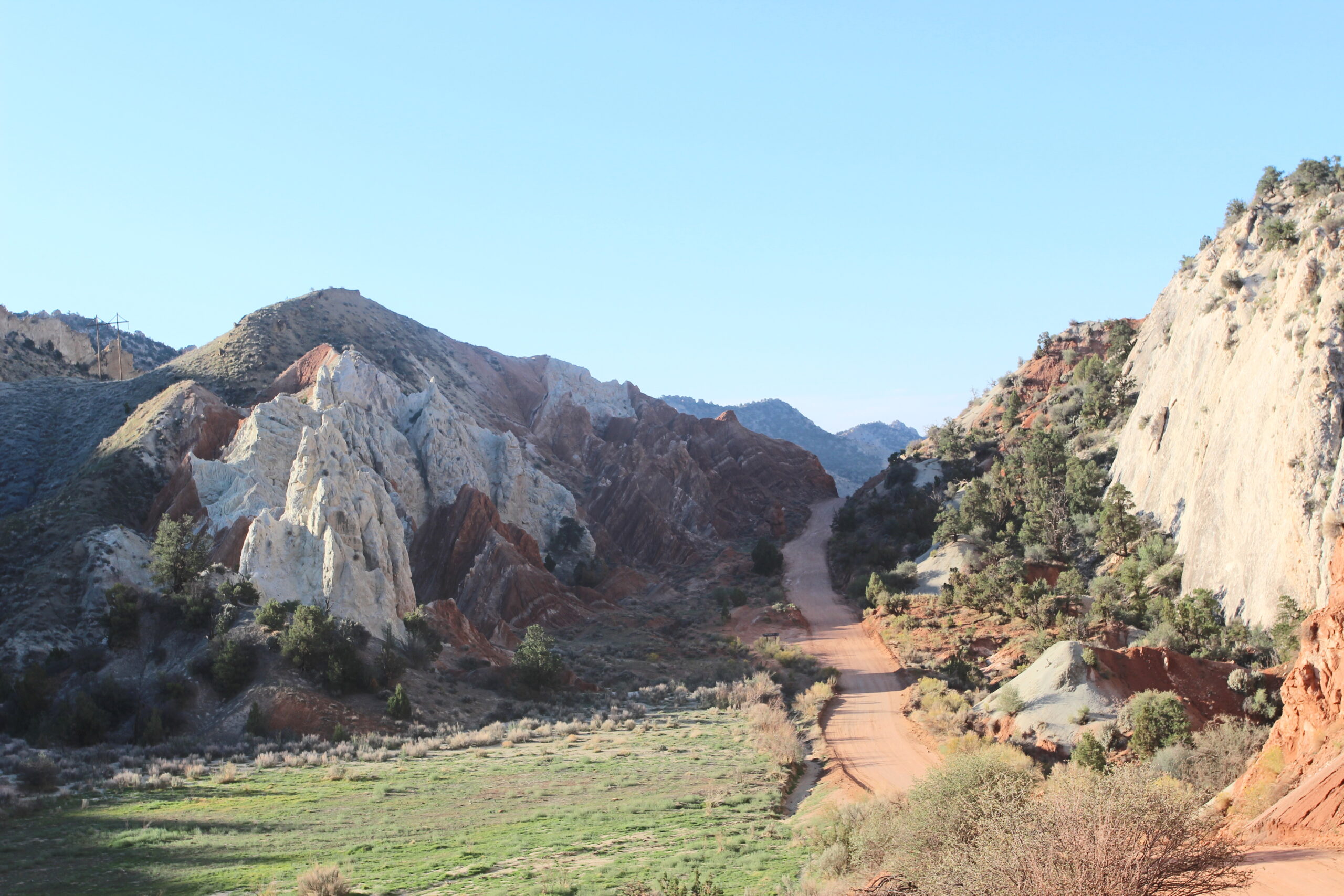
Candy Land of Cottonwood Drive while leaving this beautiful area
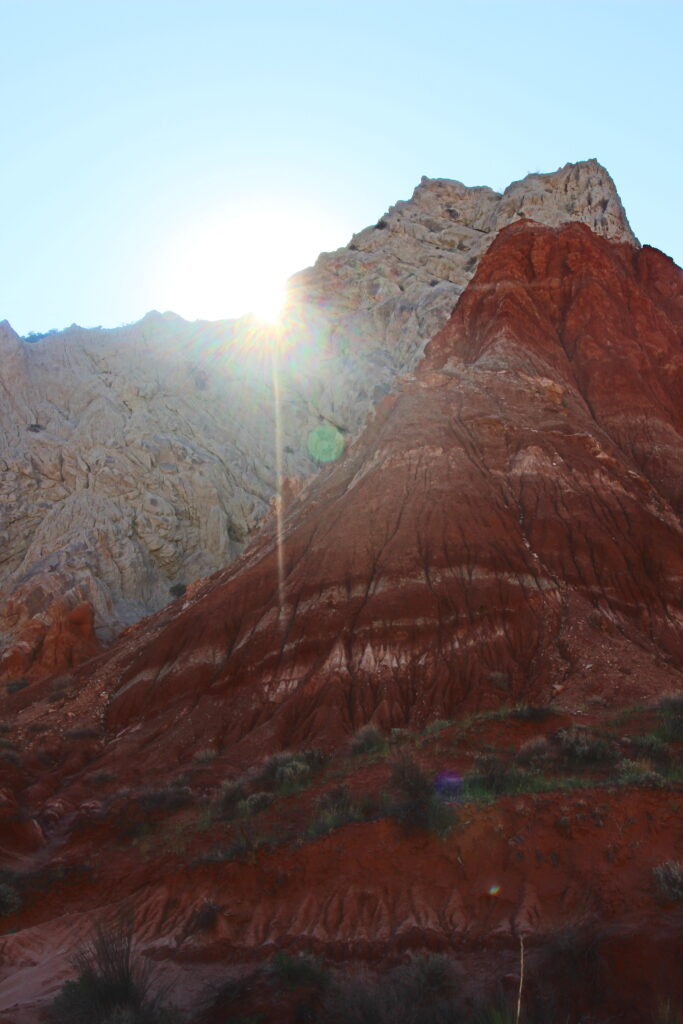
The dropping sun behind the rock formations
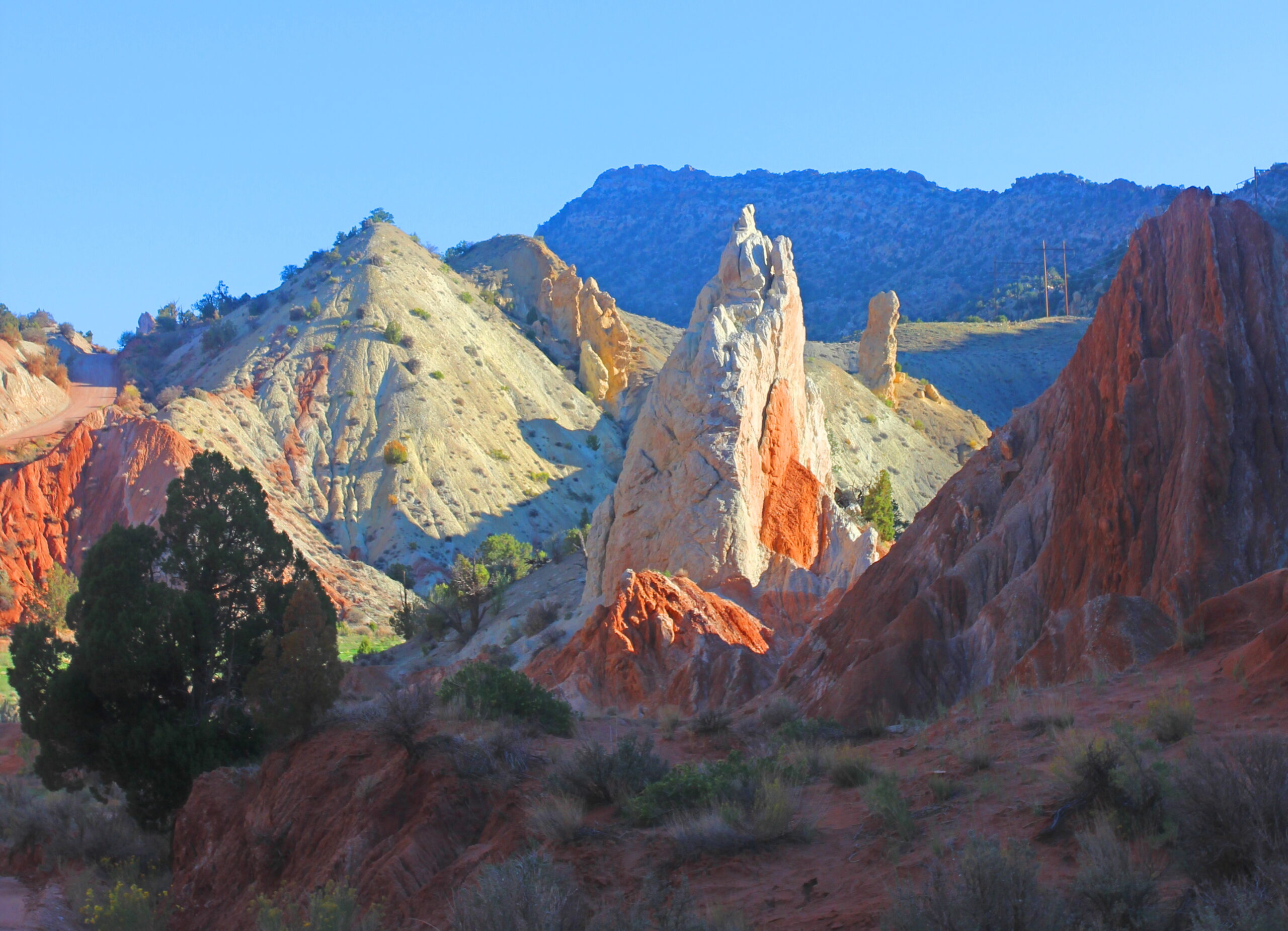
Candy colors of Candy Land
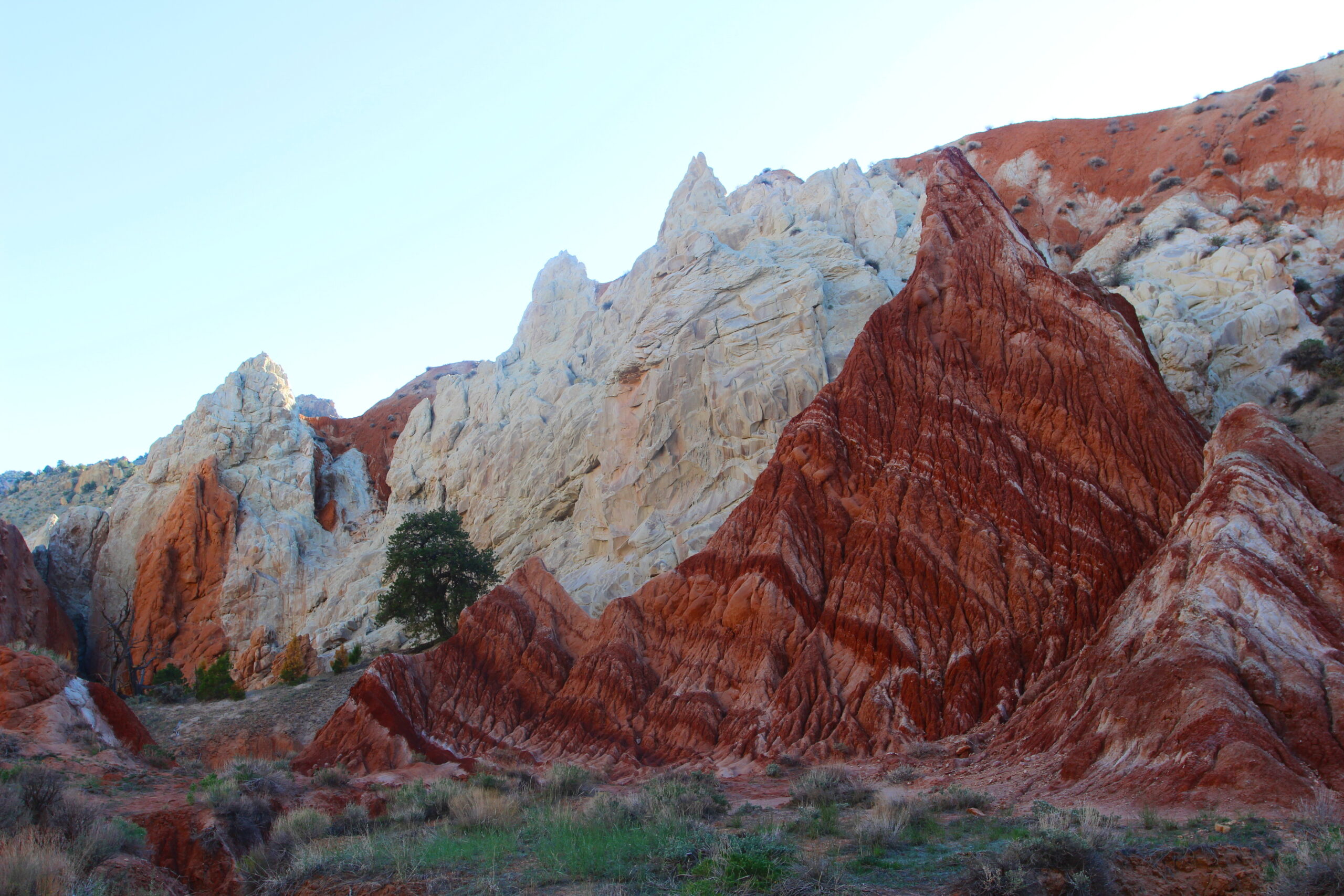
Final rock formations of the trip
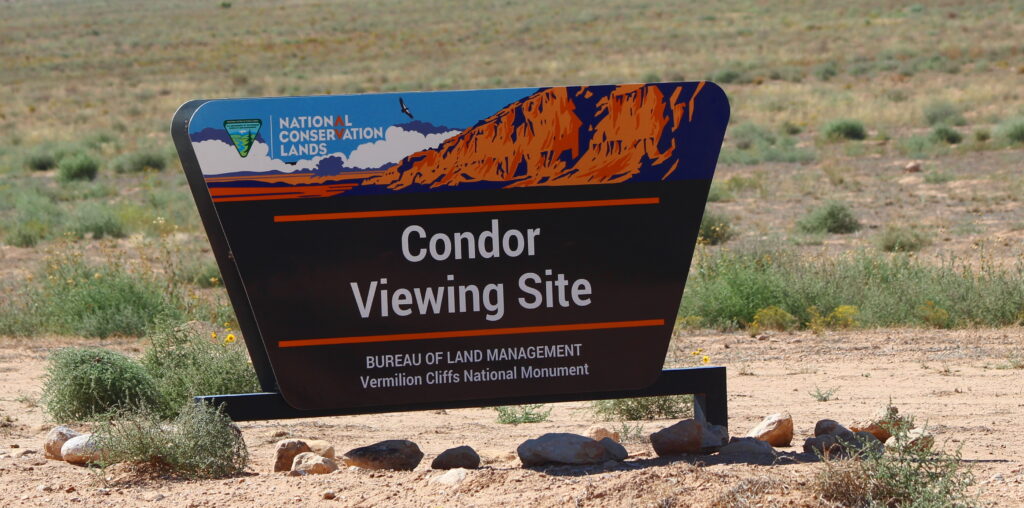
We were so fortunate to be in the area as The Peregrine Fund did their condor release in the Vermillion Hills!
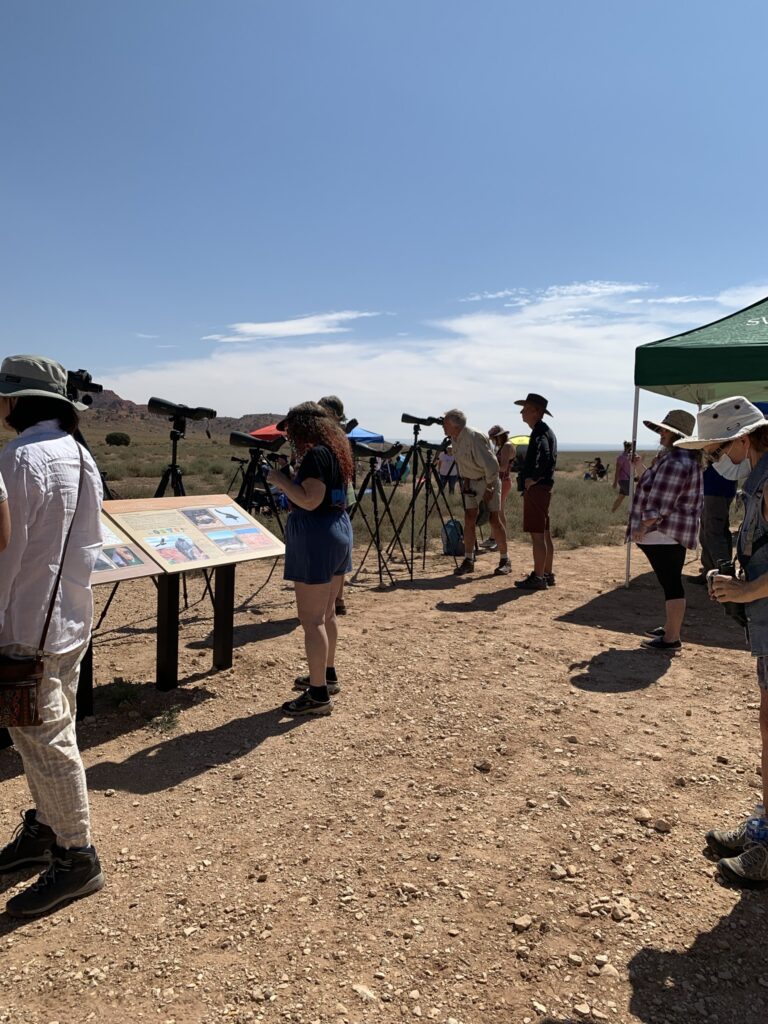
Swarovsky Crystal, a sponsor of the event, set up telescopes for the public to use to view the condors.
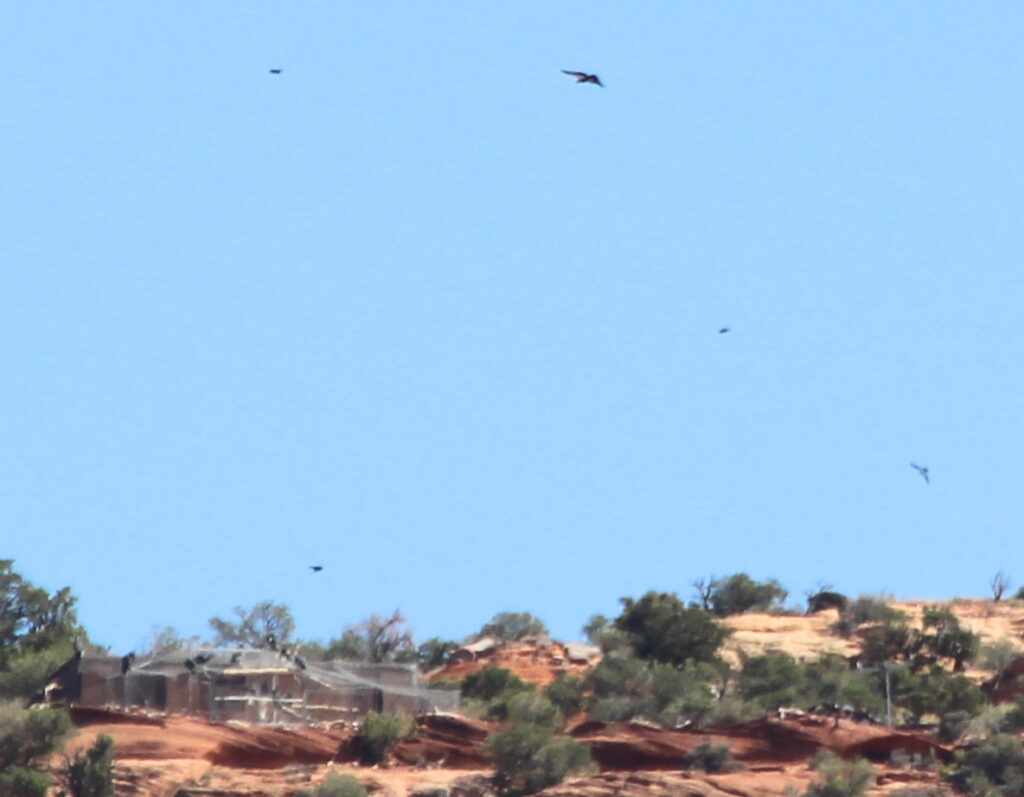
A mesh habitat next to their field office housed five 1 to 2-year-old condors. They attracted the adult flock with carrion. Condors are so social that the adults will take care of the young ones once they leave the habitat.
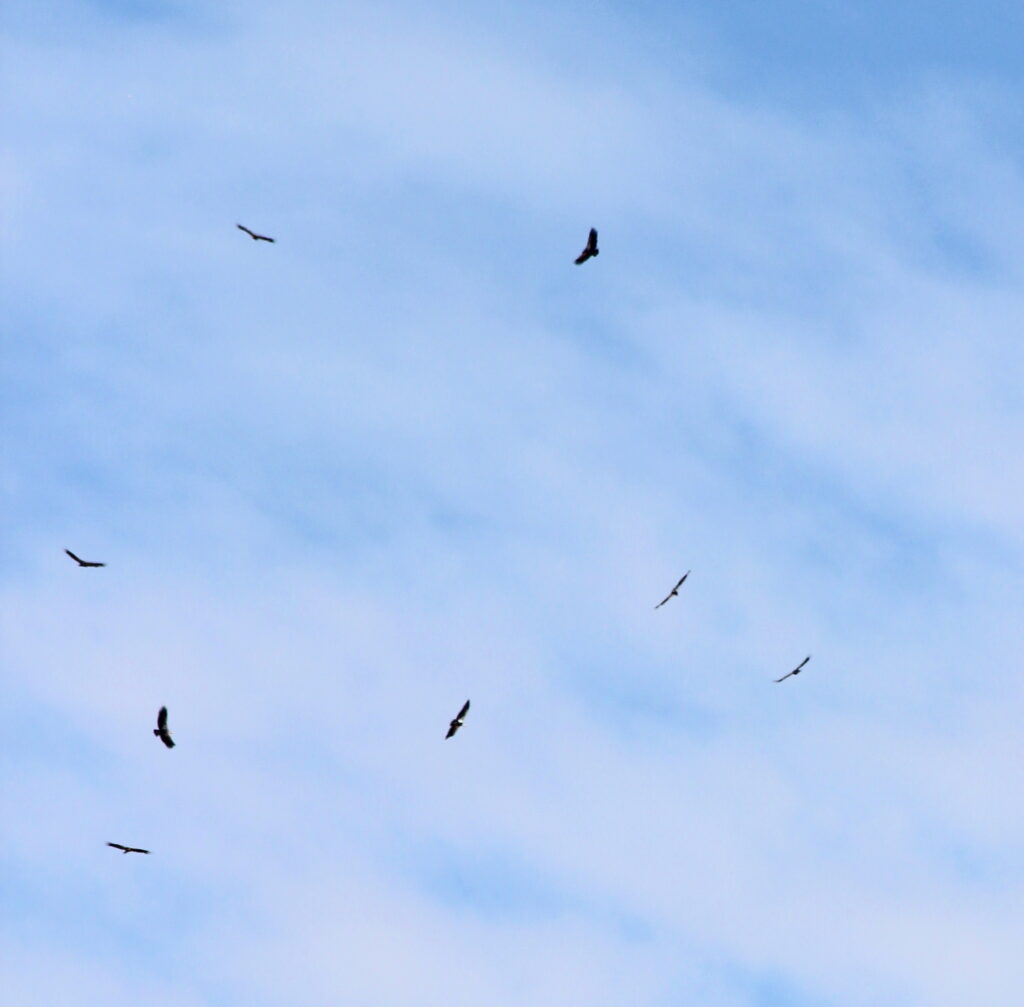
The population of condors world-wide is now up to about 500. The Vermillion Hills hosts a resident population of over 30.
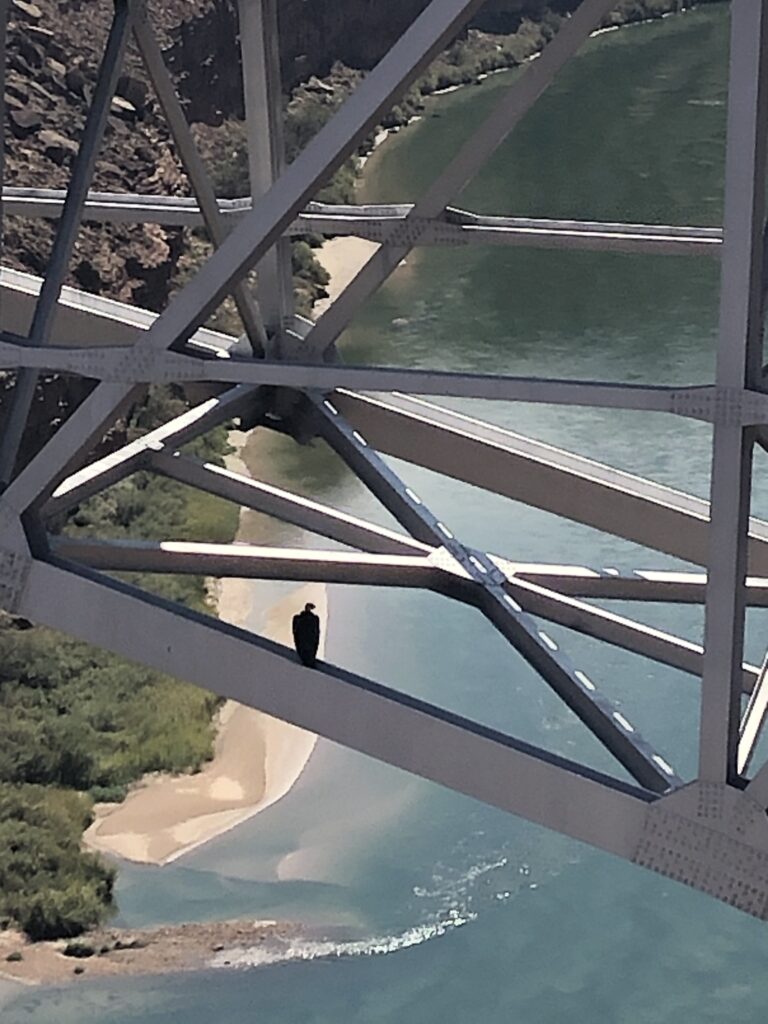
The Navajo Bridge over the Colorado Bridge is a favorite gathering spot for condors.
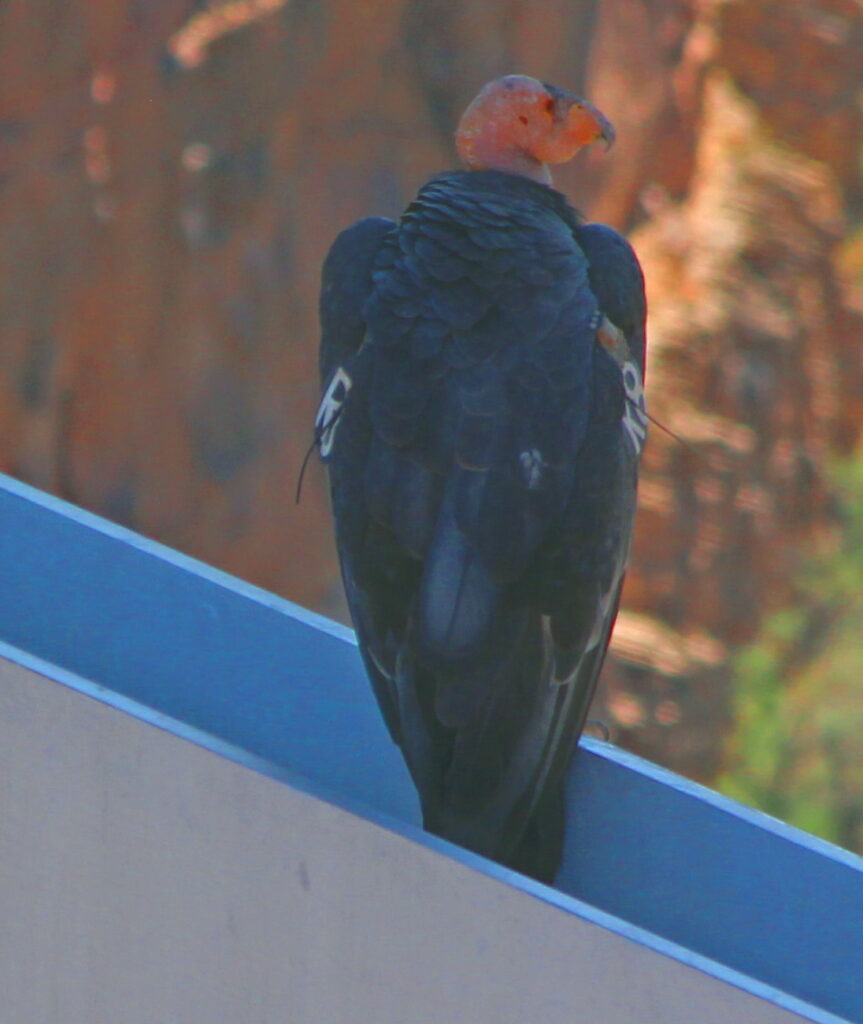
With a wingspan of 8 to 10 feet and lifespan of 60 years, they are North America’s largest land bird.
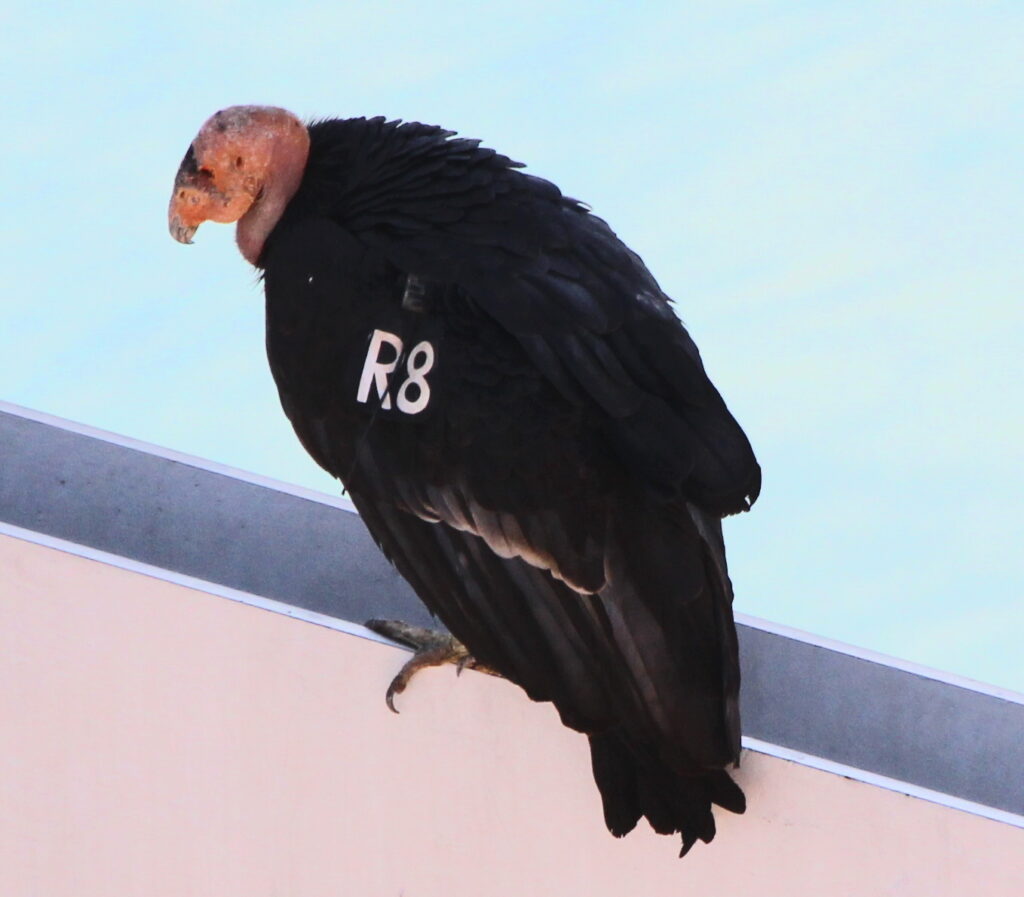
This is condor R8. He was born in Portland on April 29, 2015. He was released in the Vermillion Hills on Sept. 30, 2017.